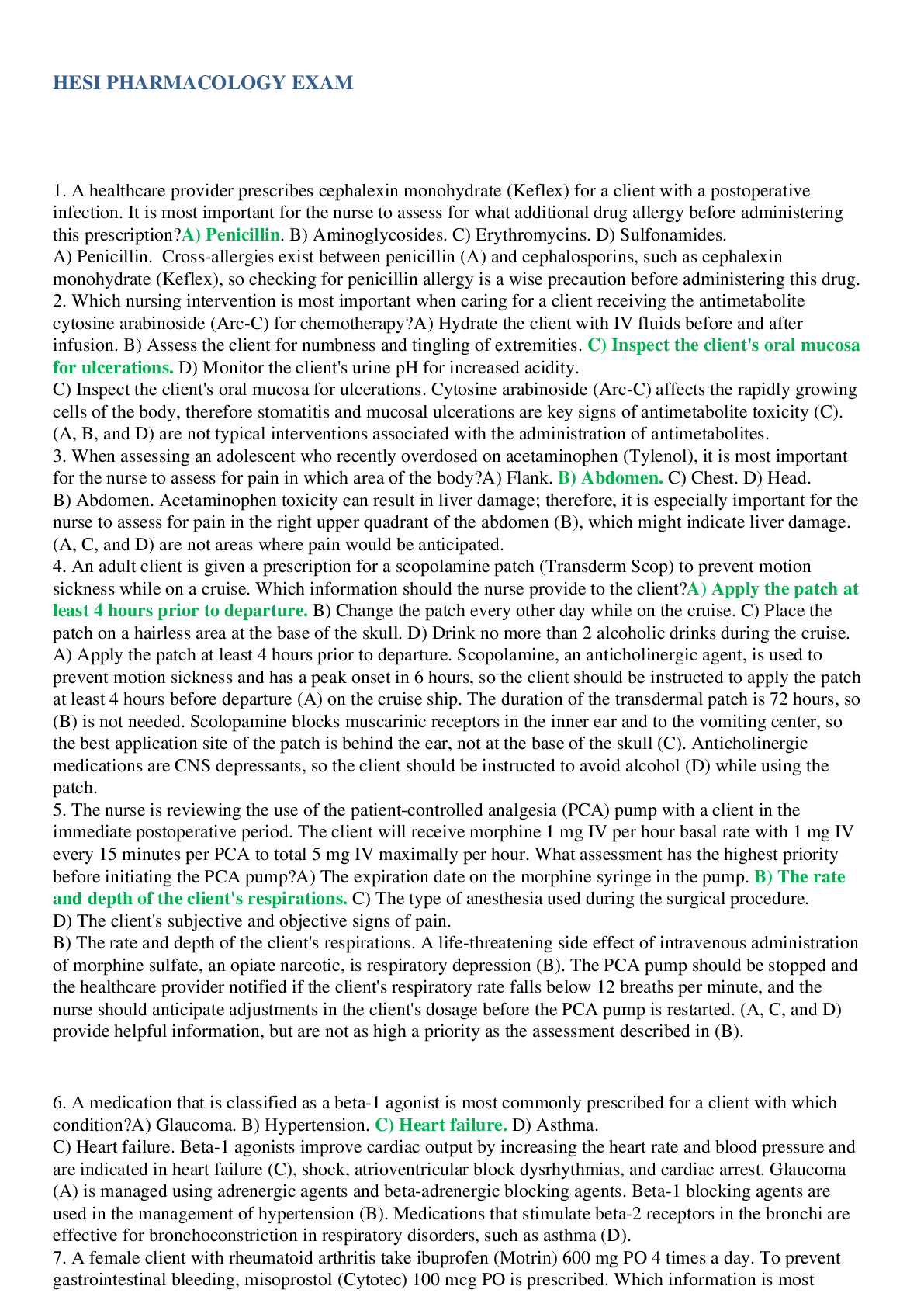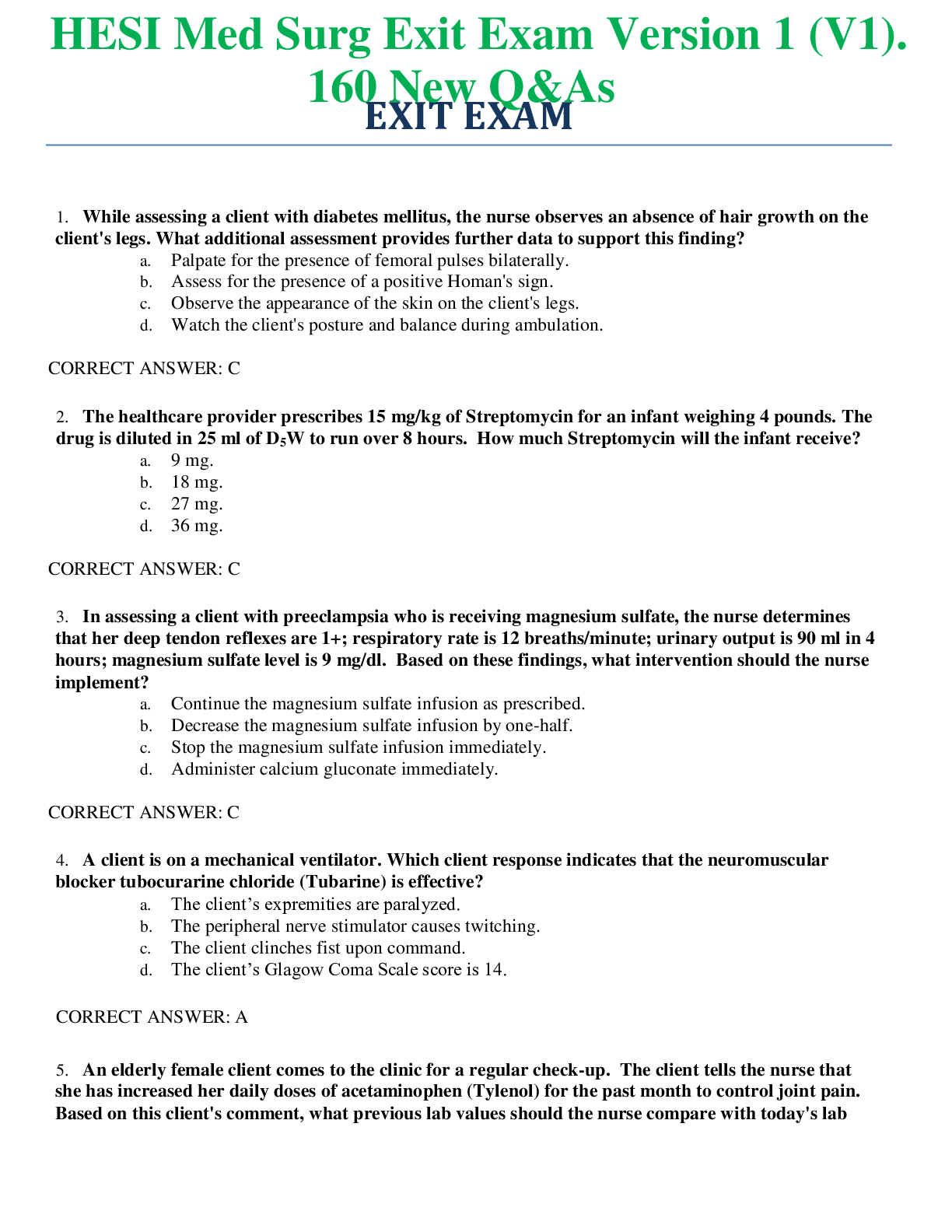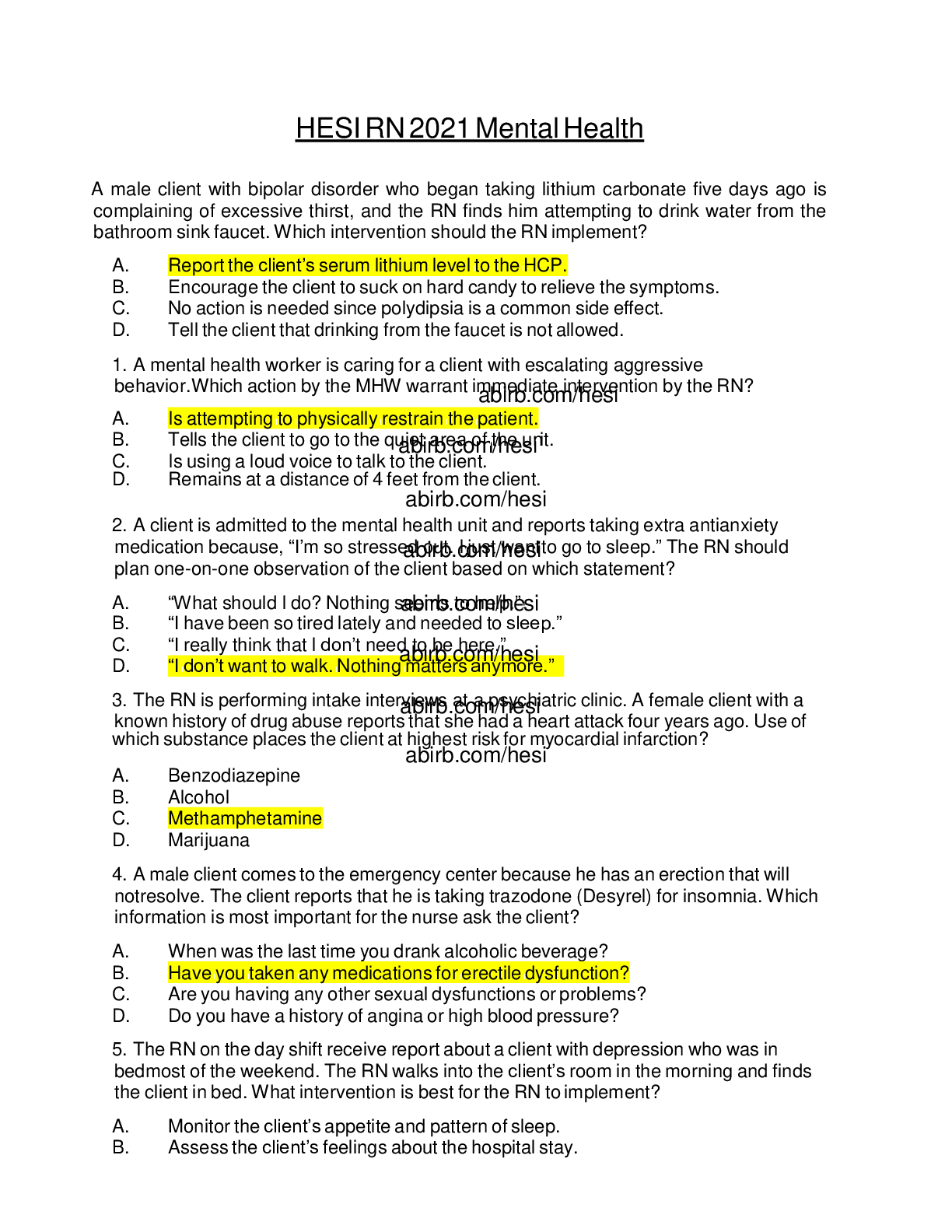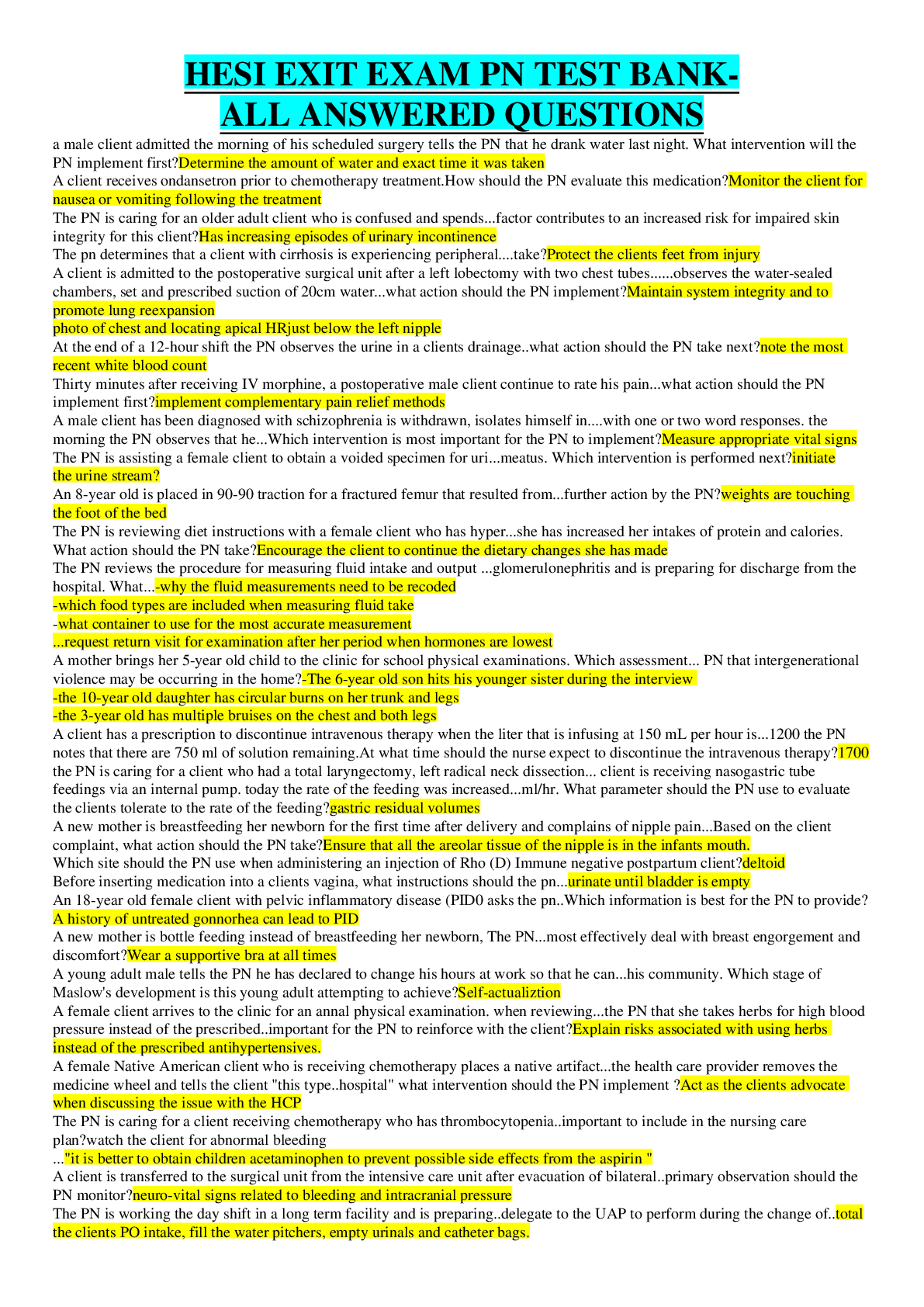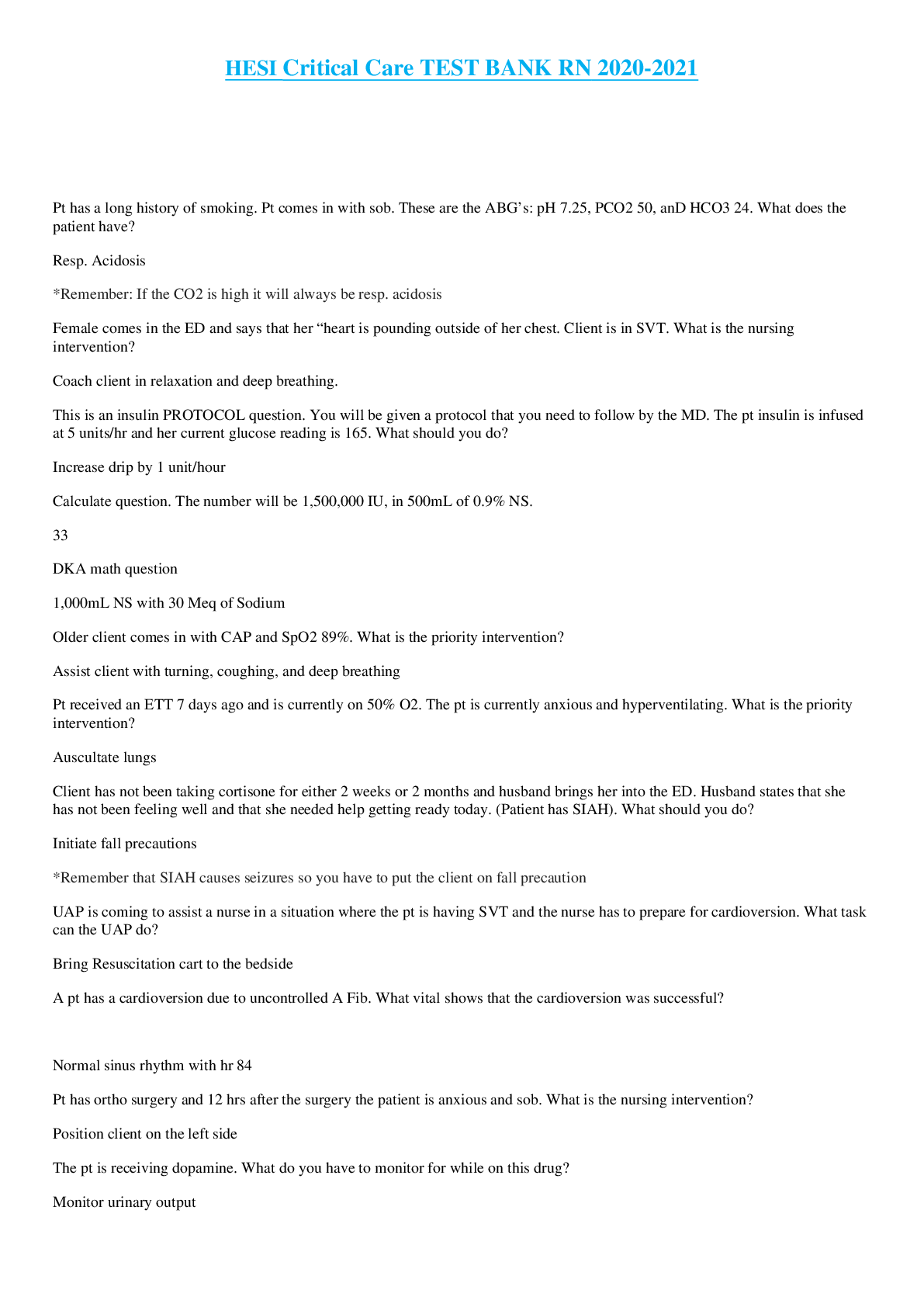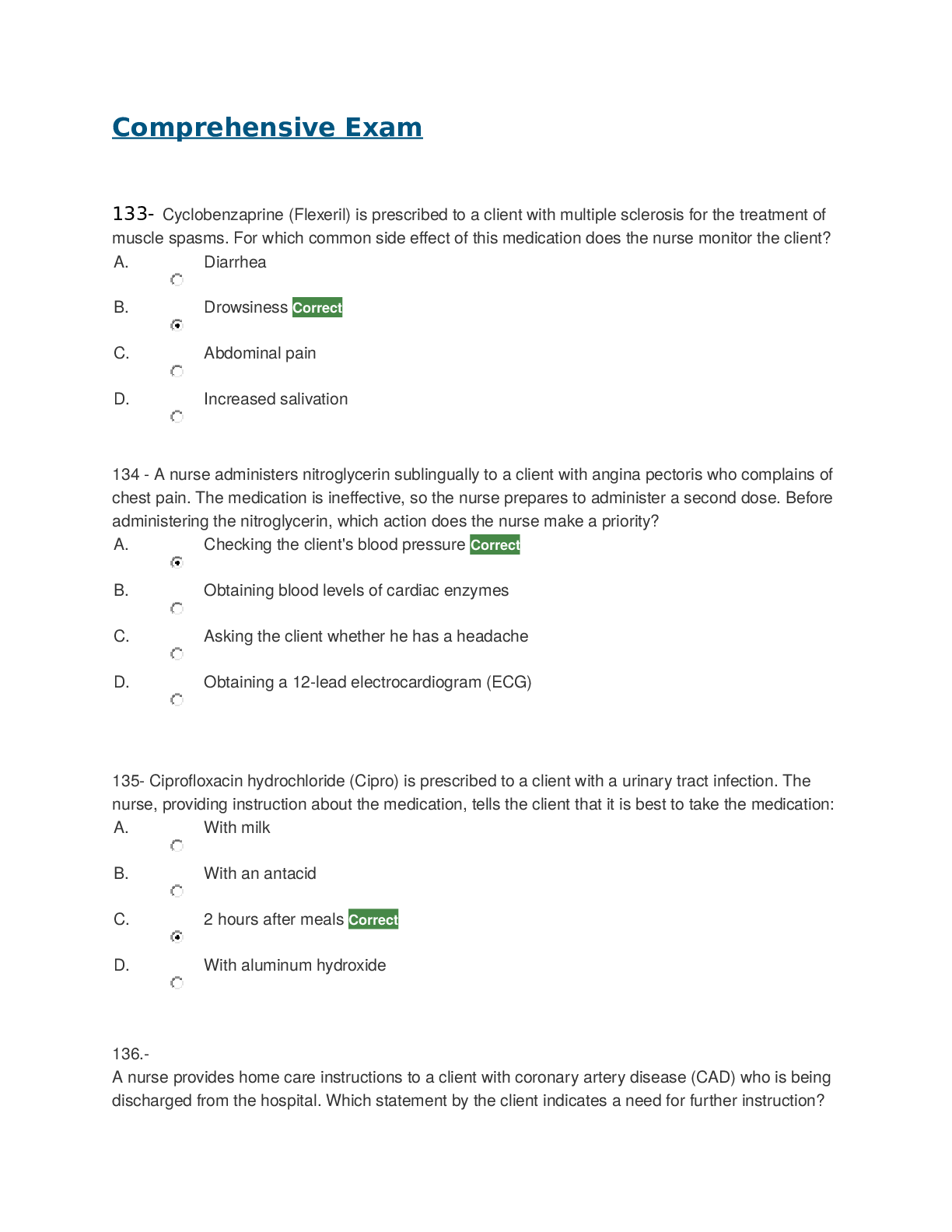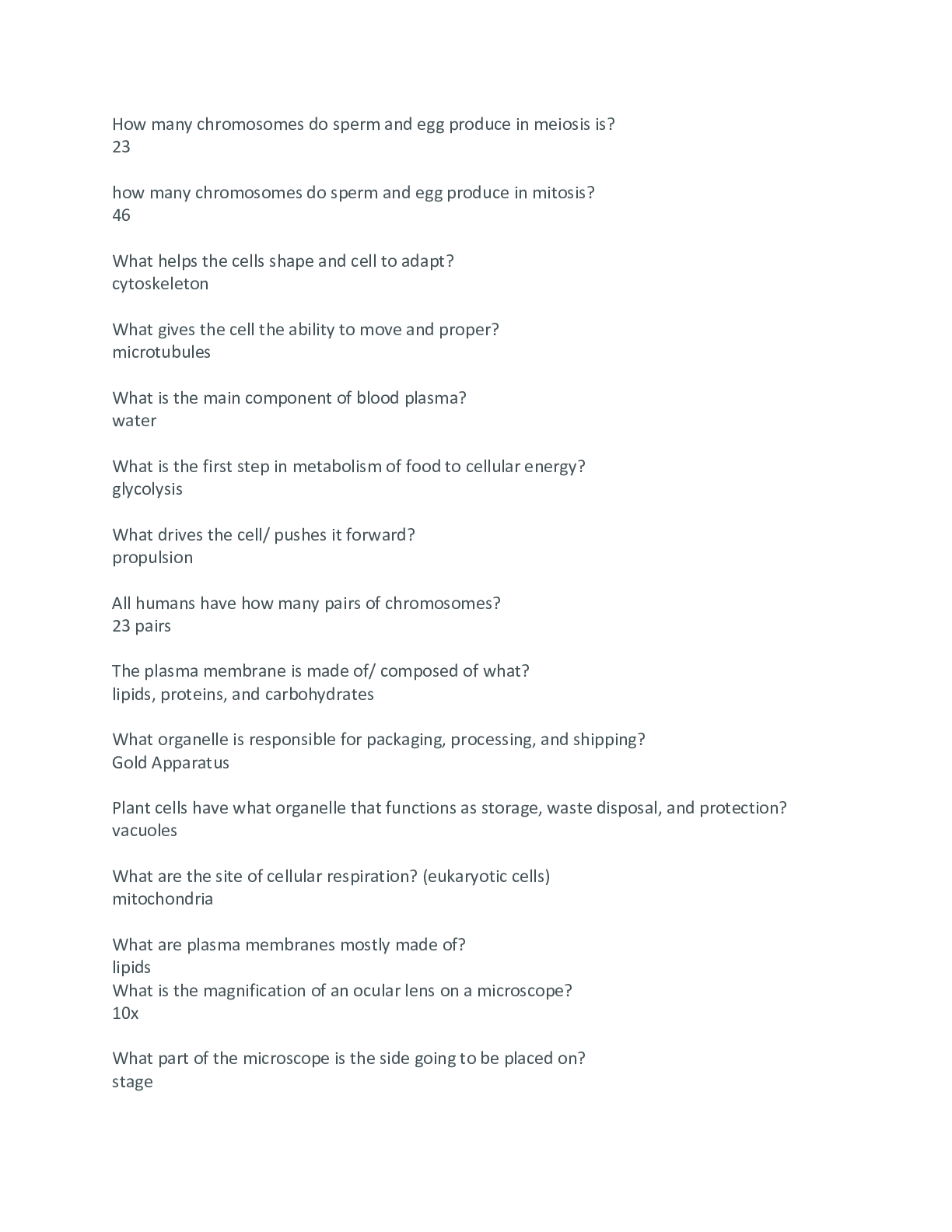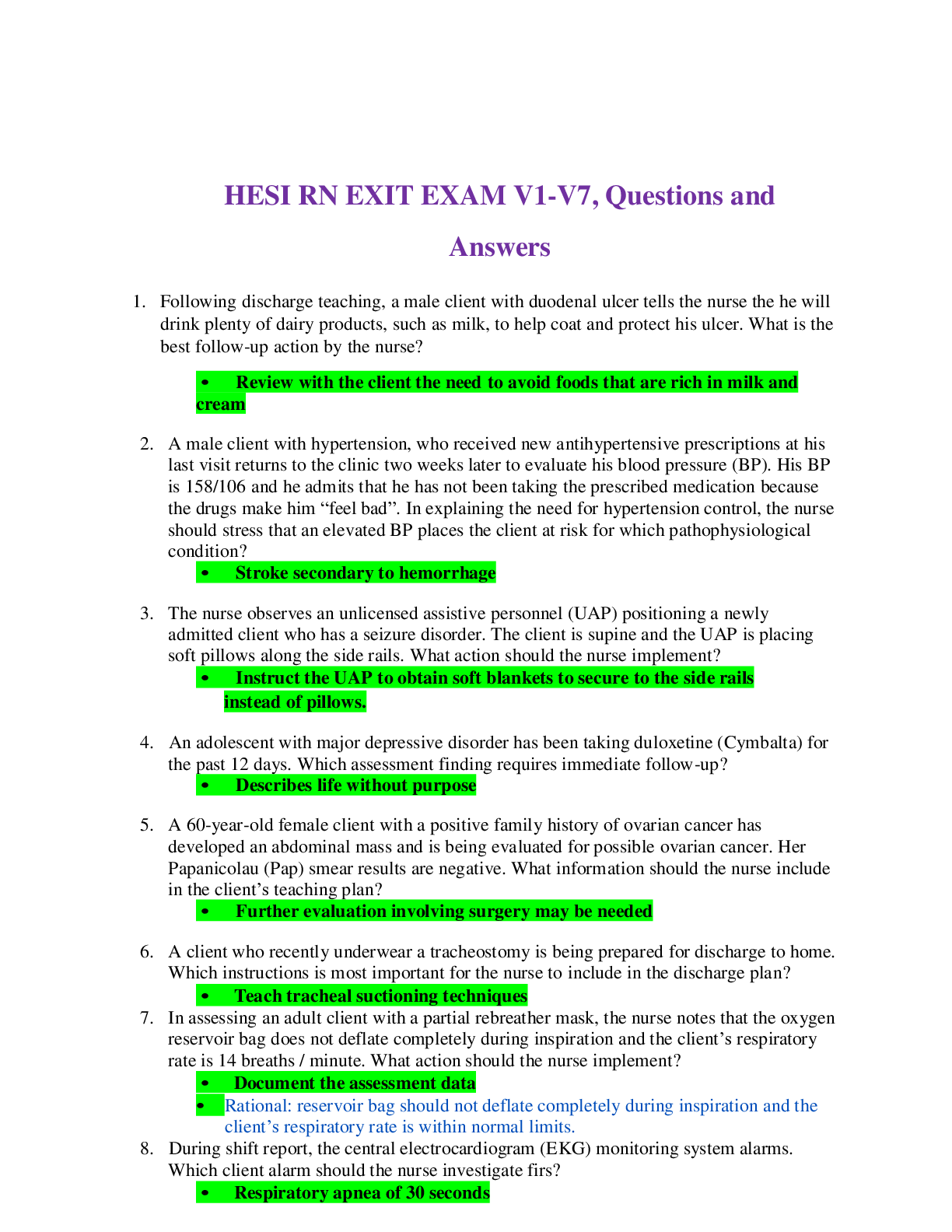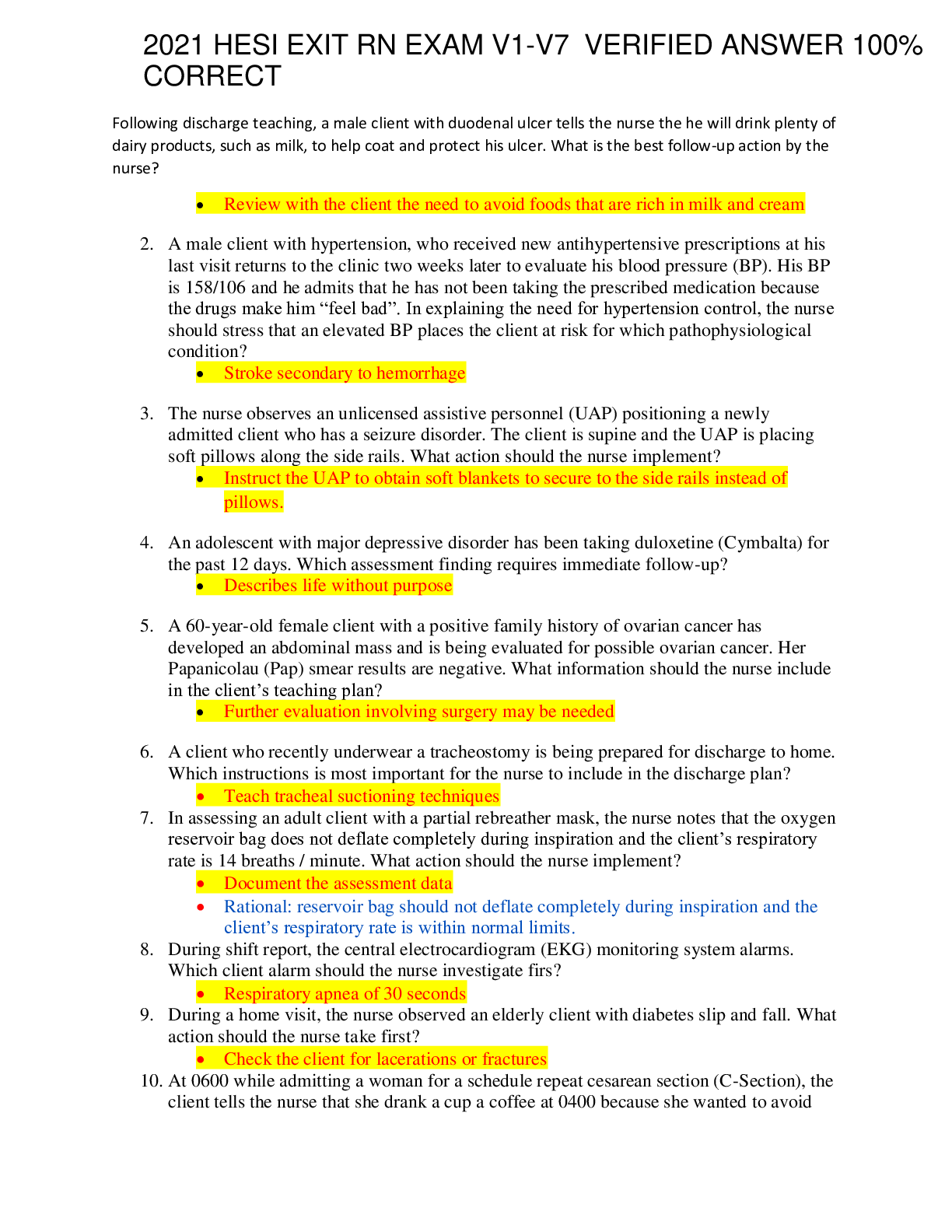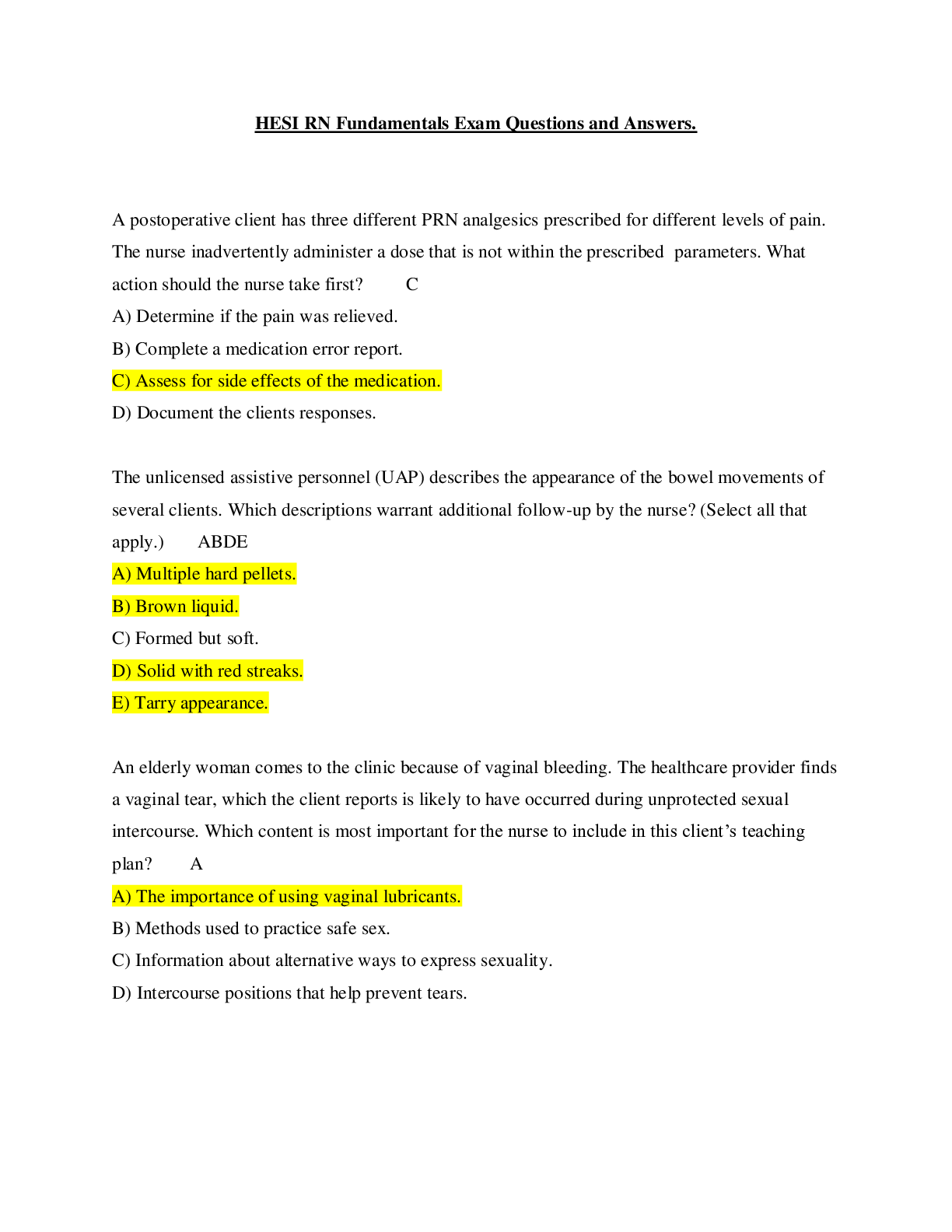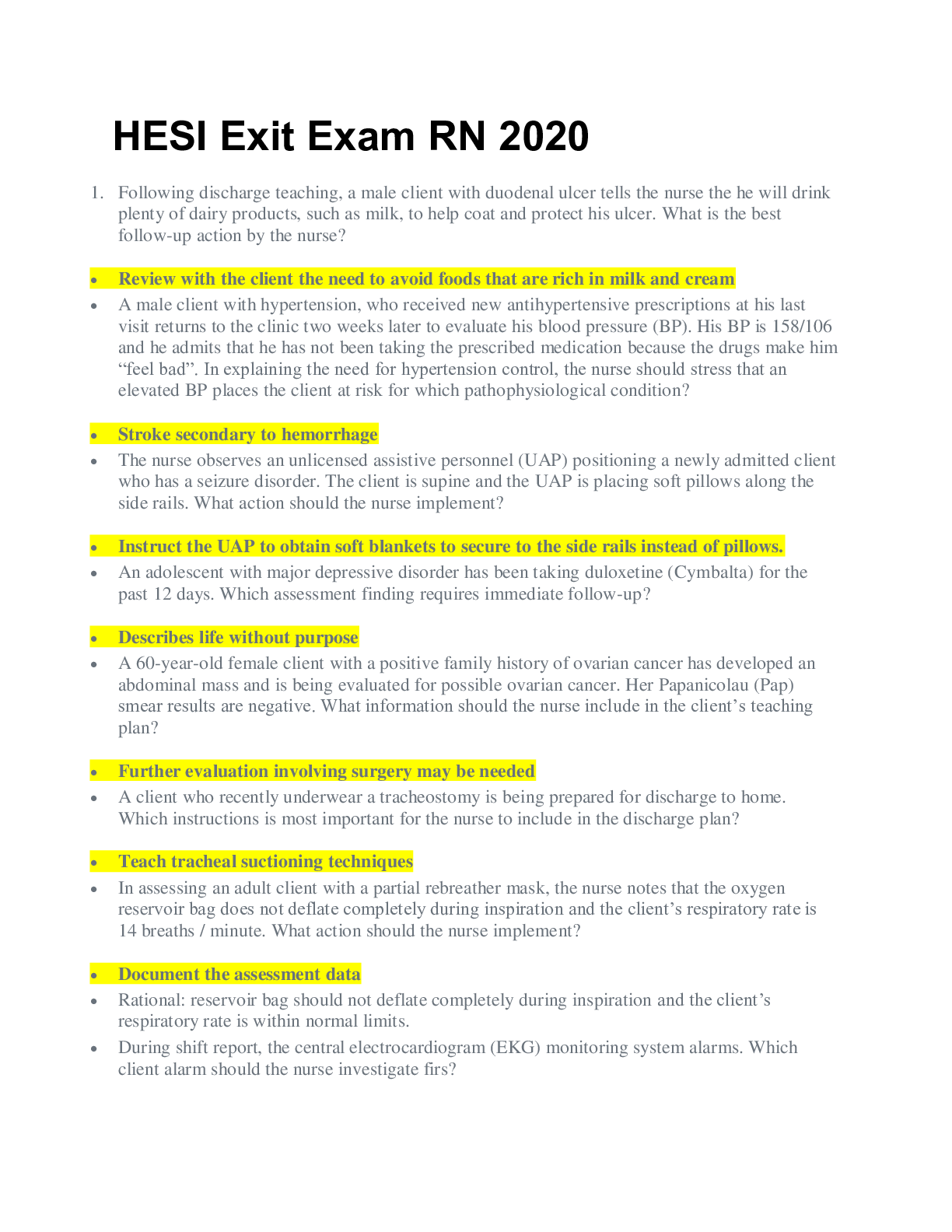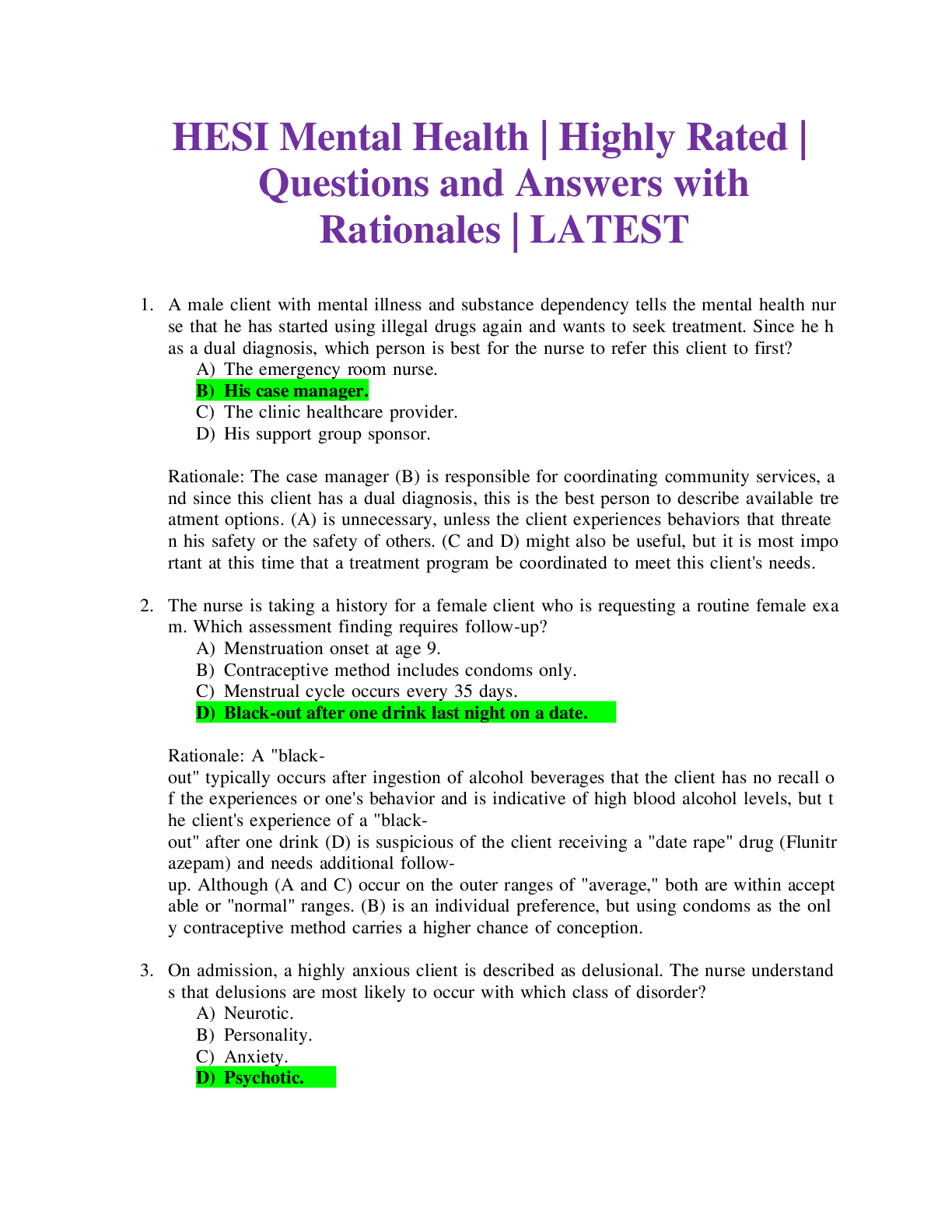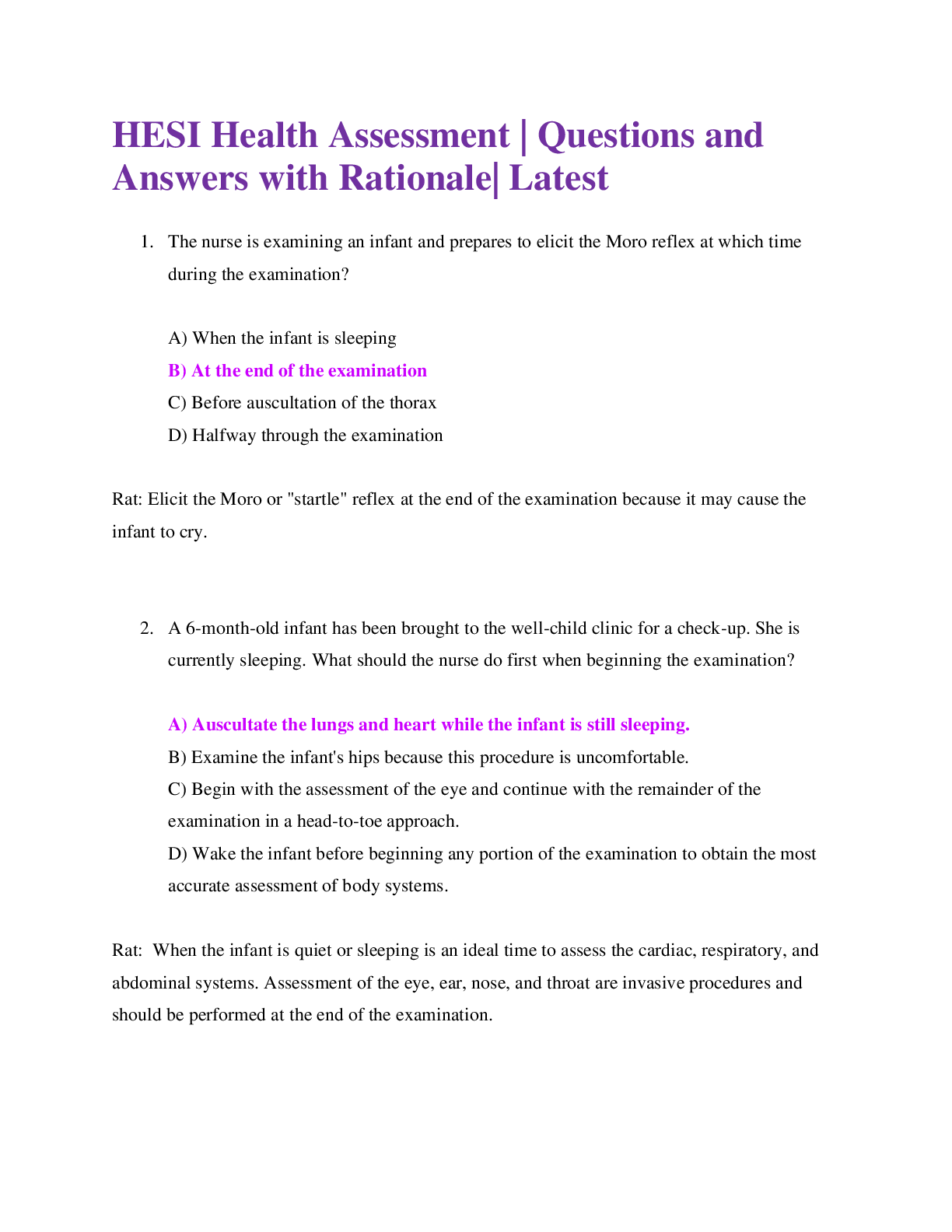Mental Health HESI 4
Document Content and Description Below
Mental Health HESI 4 1. A woman admitted to the Emergency Department is bleeding profusely from a patch where hair was lost from her scalp. She is accompanied by her husband who tells the nurse that ... his wife caught her hair on the railing and pulled it out when she fell down the stairs. The husband is solicitous of his wife and quickly answers questions on her behalf. He attempts to comfort his wife by saying to her, "I am right here with you, dear. Nothing can keep us apart." What is the priority nursing intervention? A. Notify the local police of a suspected spousal abuse situation. B. Ask the hospital security to remove the husband from the treatment room. C. Reassure the husband that his wife will be treated well while he is in the waiting area. D. Require the husband to leave the cubicle while the client is being treated. Correct This client should be questioned about the possibility of spousal abuse and cannot answer truthfully in the presence of the perpetrator, so separating the couple is a priority, and (D) is the best method of providing this separation. (A) is not the priority at this time, and permission to notify the police should be obtained from the client. (B) is premature. Abusive husbands are unlikely to respond to manipulation (C) and are also unlikely to leave based on reassurances alone. 2. While assessing a 70-year-old male client, a nurse working in the outpatient clinic notices bruises on the client's chest. The client admits that his daughter, who is his caregiver, becomes frustrated and sometimes hits him. What is the priority outcome for the elderly client who sustained the abuse? A. Verbalizes an acceptance of health status. B. Expresses his feelings of satisfaction with care. Correct C. States that the frequency of abuse has decreased. D. Describes the potential danger of his situation. Abuse cessation should result in the client feeling satisfied with his care (B). (A) is not identified as an issue. Total abuse cessation is the goal, not (C). (D) is of lesser importance than satisfaction with care. 3. The nurse is assessing a client who is believed to have a borderline personality disorder. Which question is most important to include in this assessment? A. At what age did you begin to exhibit symptoms? B. Do you have a family history of borderline disorder? C. How often do you drink alcoholic beverages? D. Do you frequently have temper tantrums? Correct Those with a borderline personality disorder demonstrate intense outbursts of anger, so (D) is the most important question to ask. (A, B, and C) provide worthwhile information, but do not have the priority of (D) when assessing a client who is suspected of having a borderline personality disorder. 4. A nurse is teaching a female client who is in a homosexual relationship about women's health. Which topic is the most important for the nurse to address? A. Sexually transmitted diseases. B. Annual gynecologic examination. C. Monthly breast self-examination. D. Domestic violence interventions. Correct Since all women, regardless of sexual orientation, are at risk for domestic violence that can be potentially lethal, this is the most important topic for the nurse to address (D). Although (A) can be transferred by skin contact or bodily fluids, they are not immediately life threatening. All women, including those involved in same sex relationships, should receive a screening gynecologic examination (B). Homosexual women have the same risk for breast cancer (C) as heterosexual women. 5. A client who abuses alcohol says to the nurse, I am glad I went in for treatment. Now my problems with alcohol are all behind me. Which response is best for the nurse to provide? A. Yes, the treatment program you attended has an excellent success profile. B. Can you tell me more about what you mean when you say that your problems with alcohol are now behind you? Correct C. You are likely to have a difficult time staying sober if you think that your problems with alcohol are behind you. D. Do you know what 'one day at a time' means for those who have problems with alcohol? Those who attend alcohol treatment programs and Alcoholics Anonymous never put drinking problems behind them and describe alcoholics as only one step away from a slip with maintaining sobriety. The nurse should use reflection and encourage the client to further describe the feelings (B). (A) avoids dealing with the client's misperception. (C) is threatening, and (D) could be interpreted as condescending. 6. A male client who is on the liver transplant list is called to the unit for a possible transplant. When learning that the donor organ is no longer available, the client slams doors and shouts vulgarities about his situation. What action should the nurse implement first? A. Encourage him to share his feelings more appropriately. B. Express concern over his disappointment. Correct C. Arrange to have a clergy person visit. D. Administer a PRN prescription for an antianxiety drug. Addressing the client's disappointment (B) enables the client to express feelings of frustration in a safe environment. (A) is dismissive, non-supportive, and could incite defensiveness. (C) may be indicated after other interventions are implemented. (D) should be a last resort because clients with liver failure have difficulty metabolizing medications. ...........CONTINUED [Show More]
Last updated: 1 year ago
Preview 1 out of 19 pages
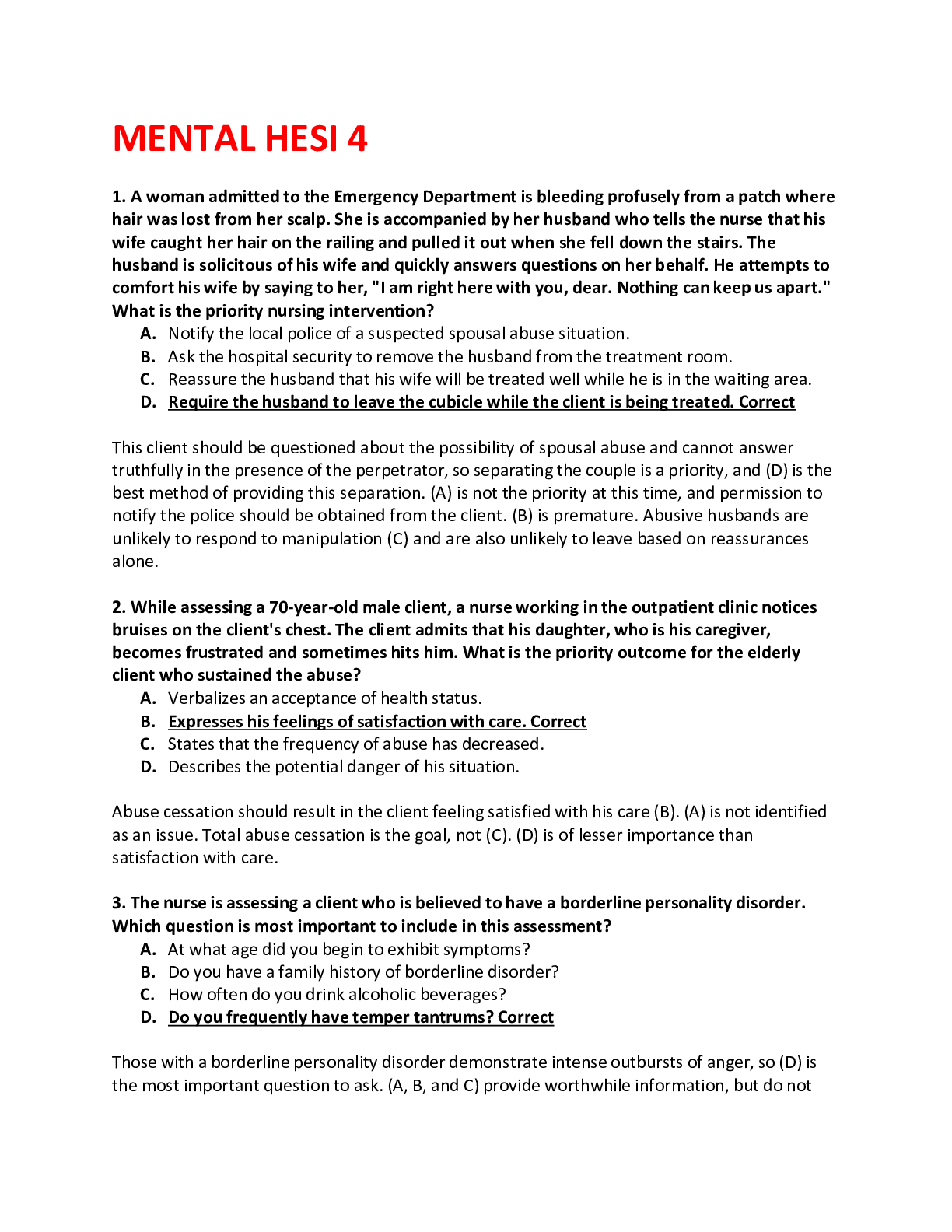
Also available in bundle (1)
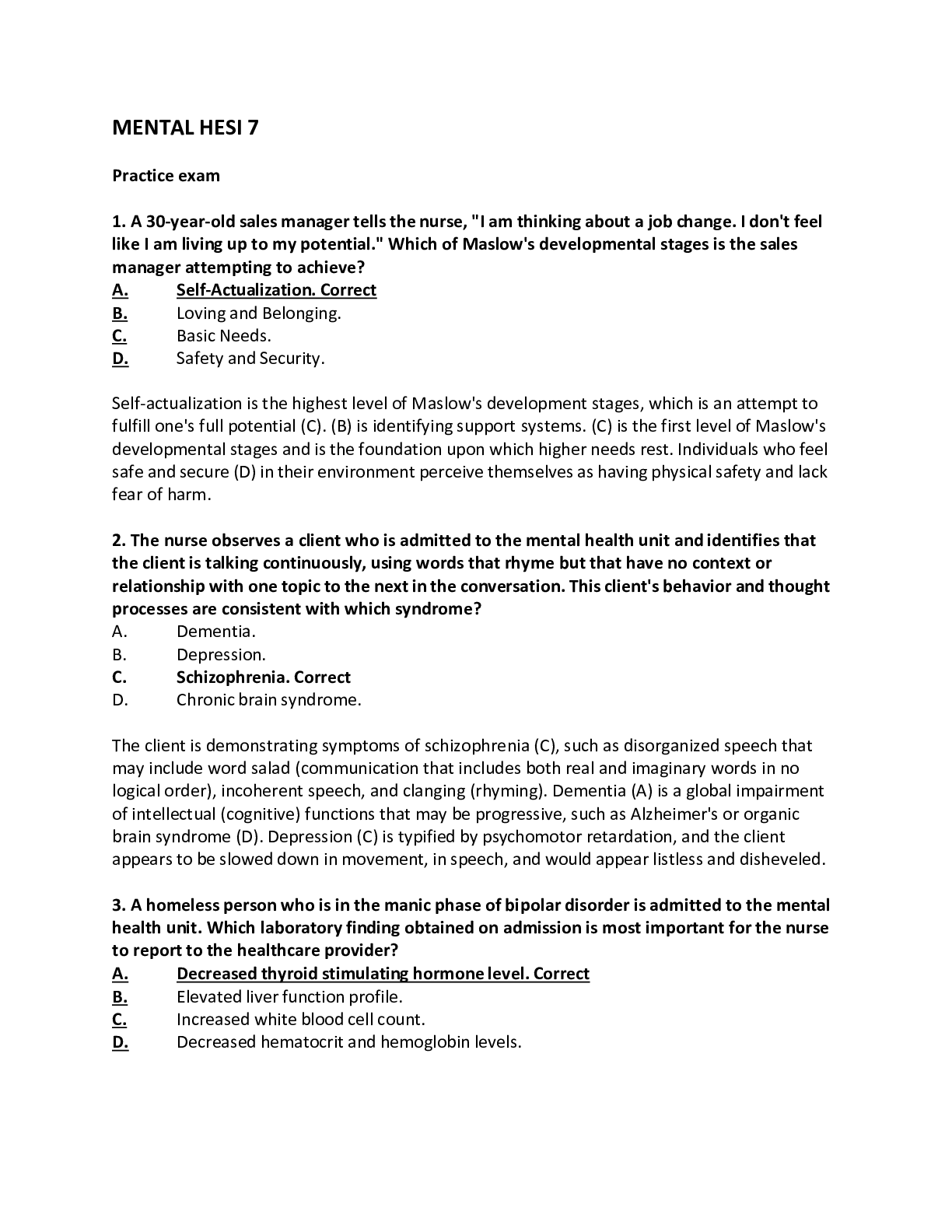
Mental Health HESI 1-7
Mental Health HESI 1-7
By YourTutor 3 years ago
$65.5
7
Reviews( 0 )
Document information
Connected school, study & course
About the document
Uploaded On
Jan 27, 2021
Number of pages
19
Written in
Additional information
This document has been written for:
Uploaded
Jan 27, 2021
Downloads
0
Views
90

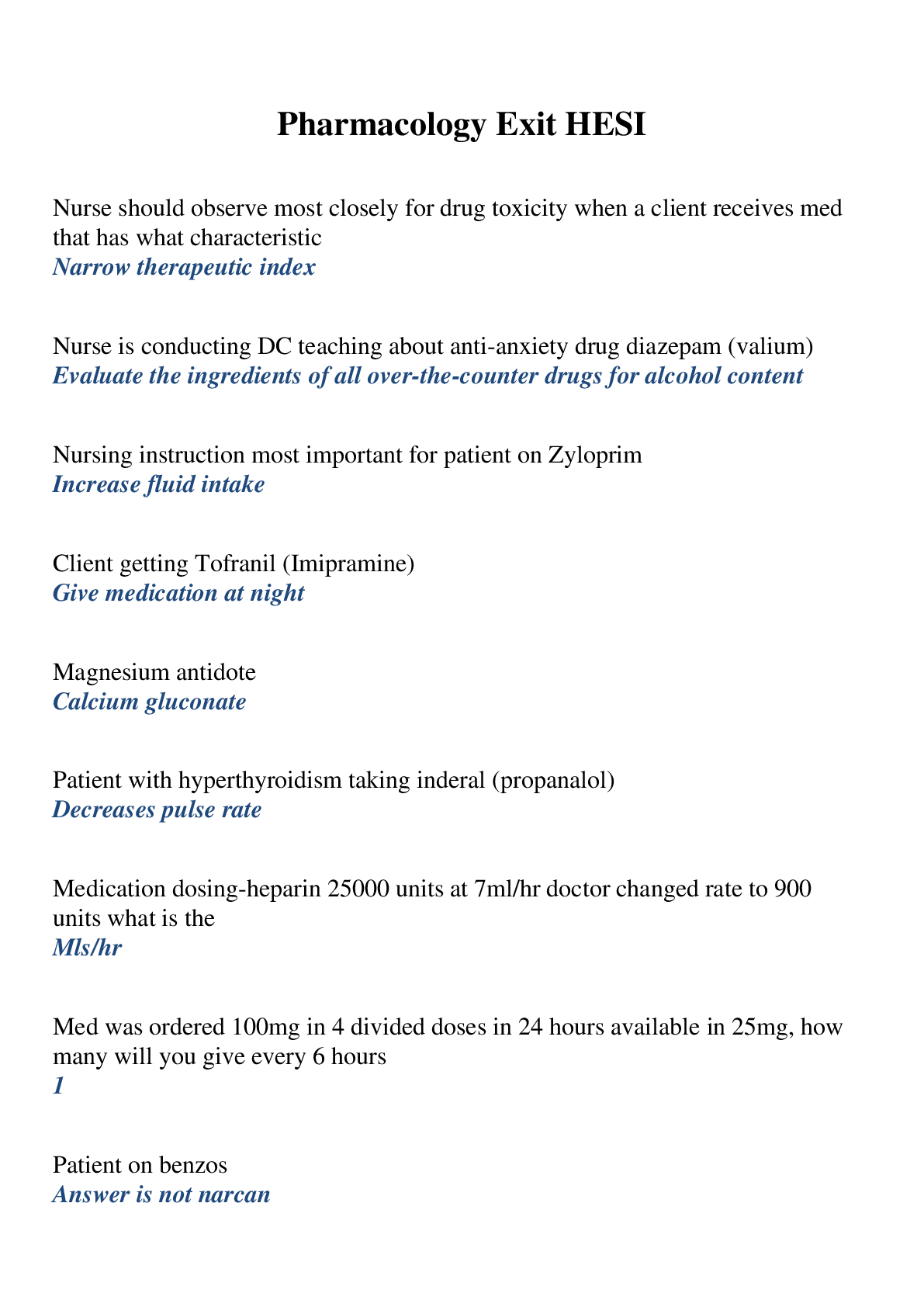
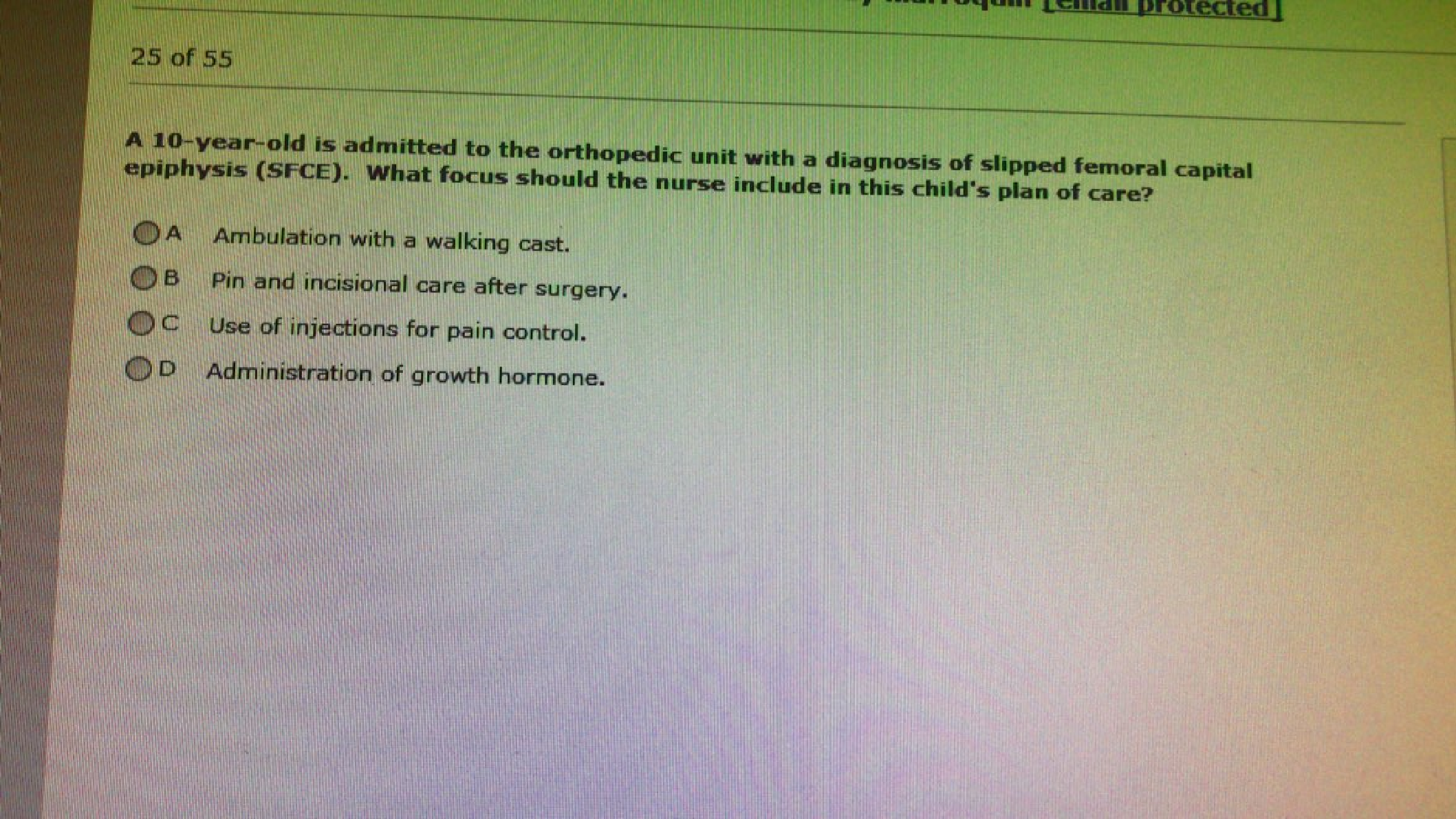
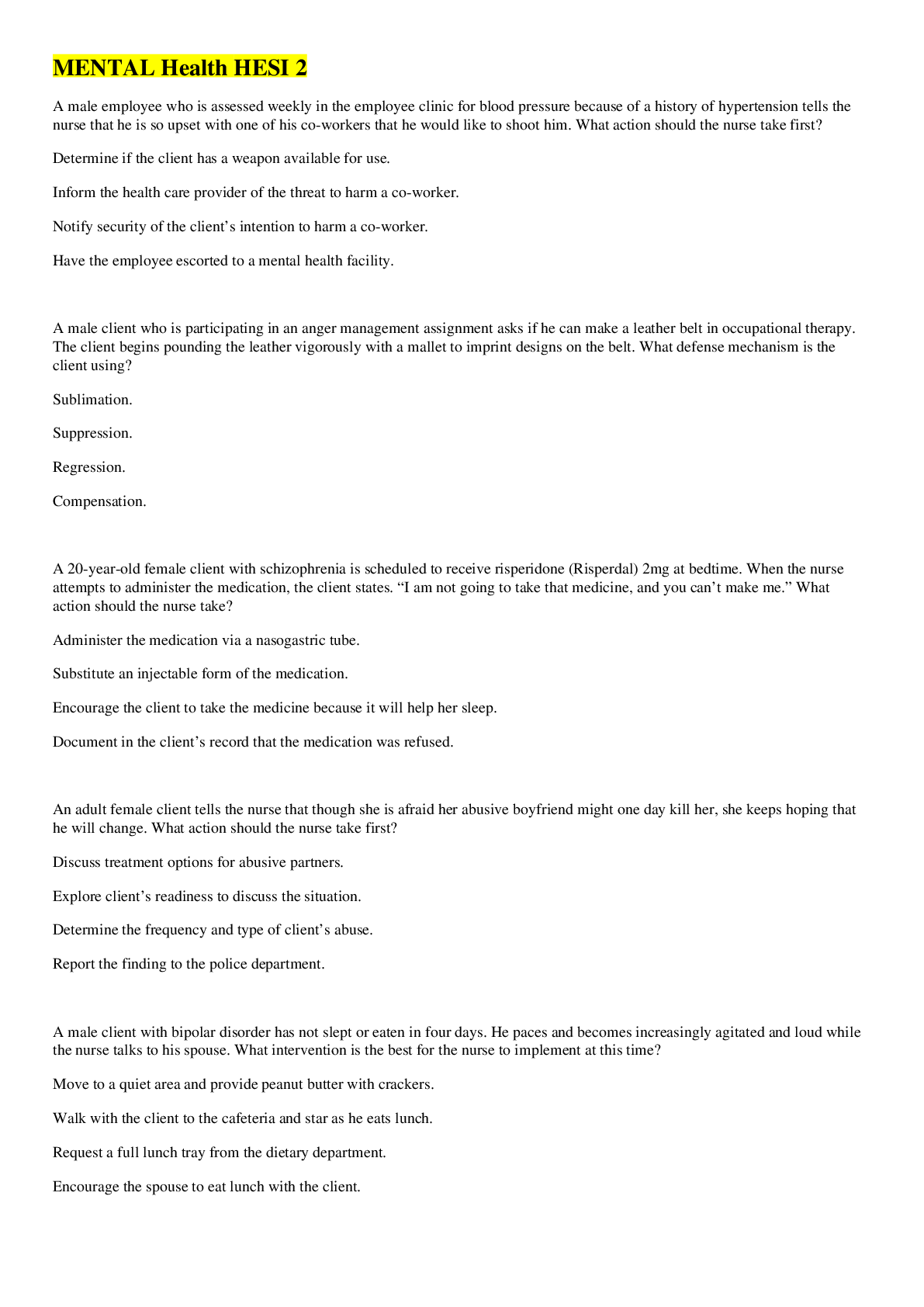
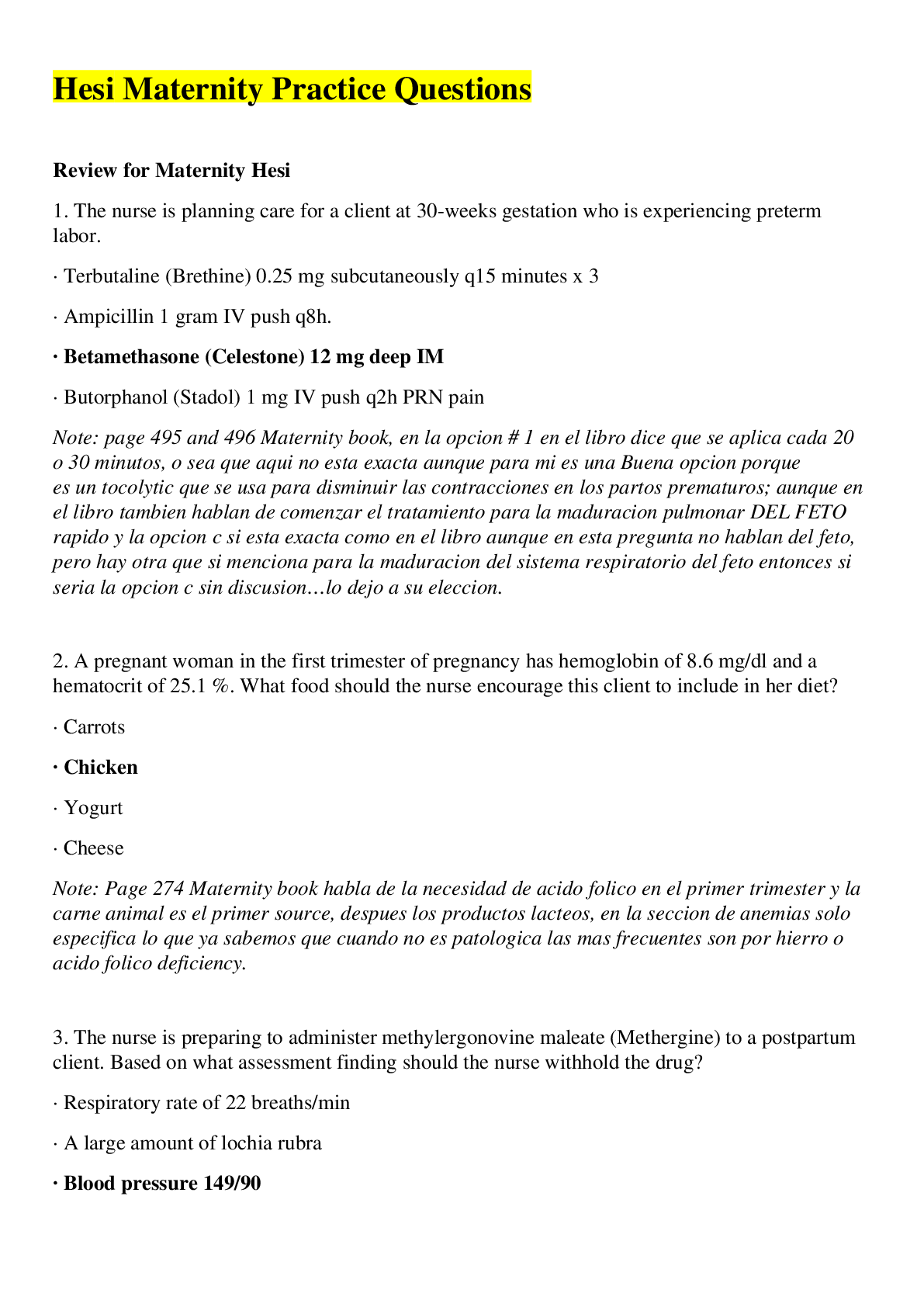
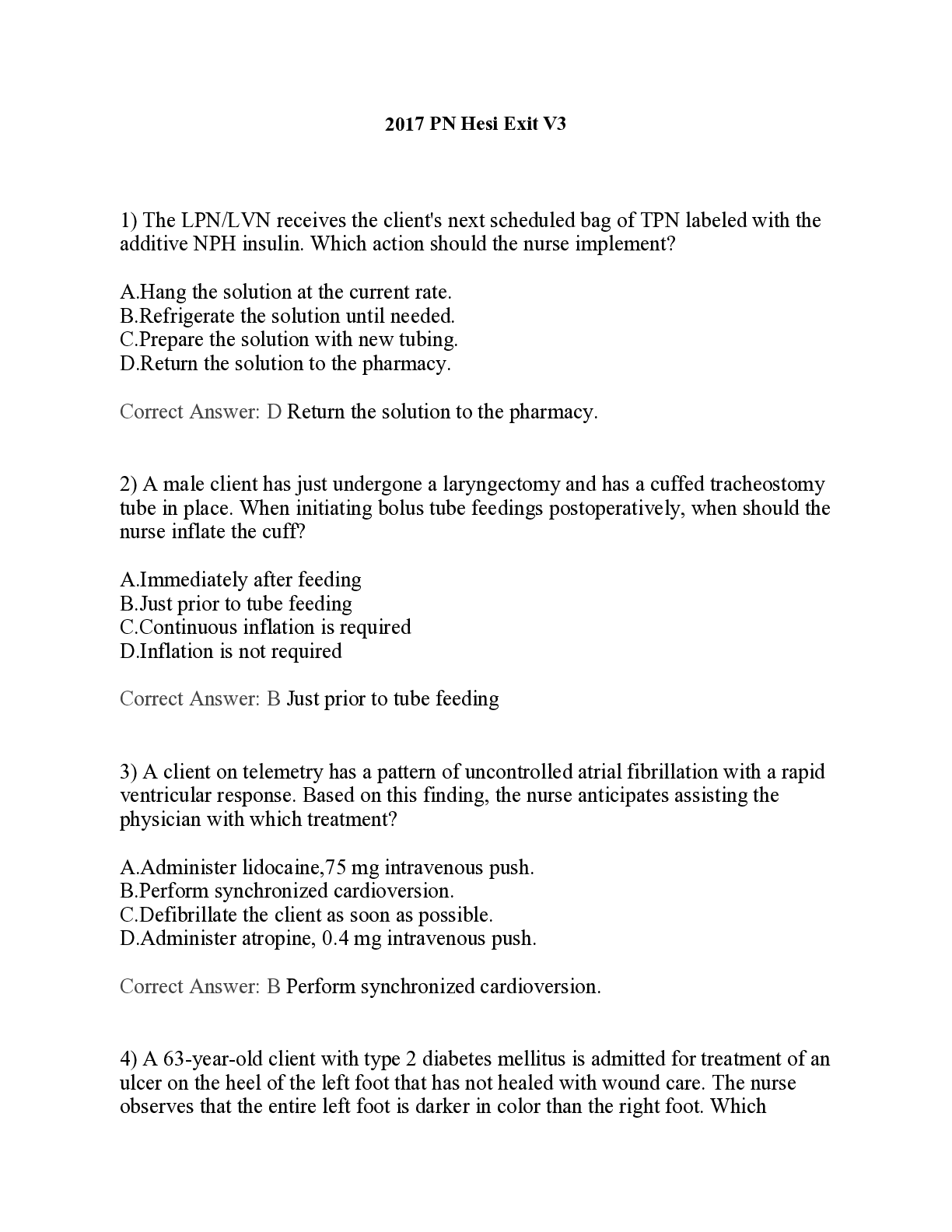
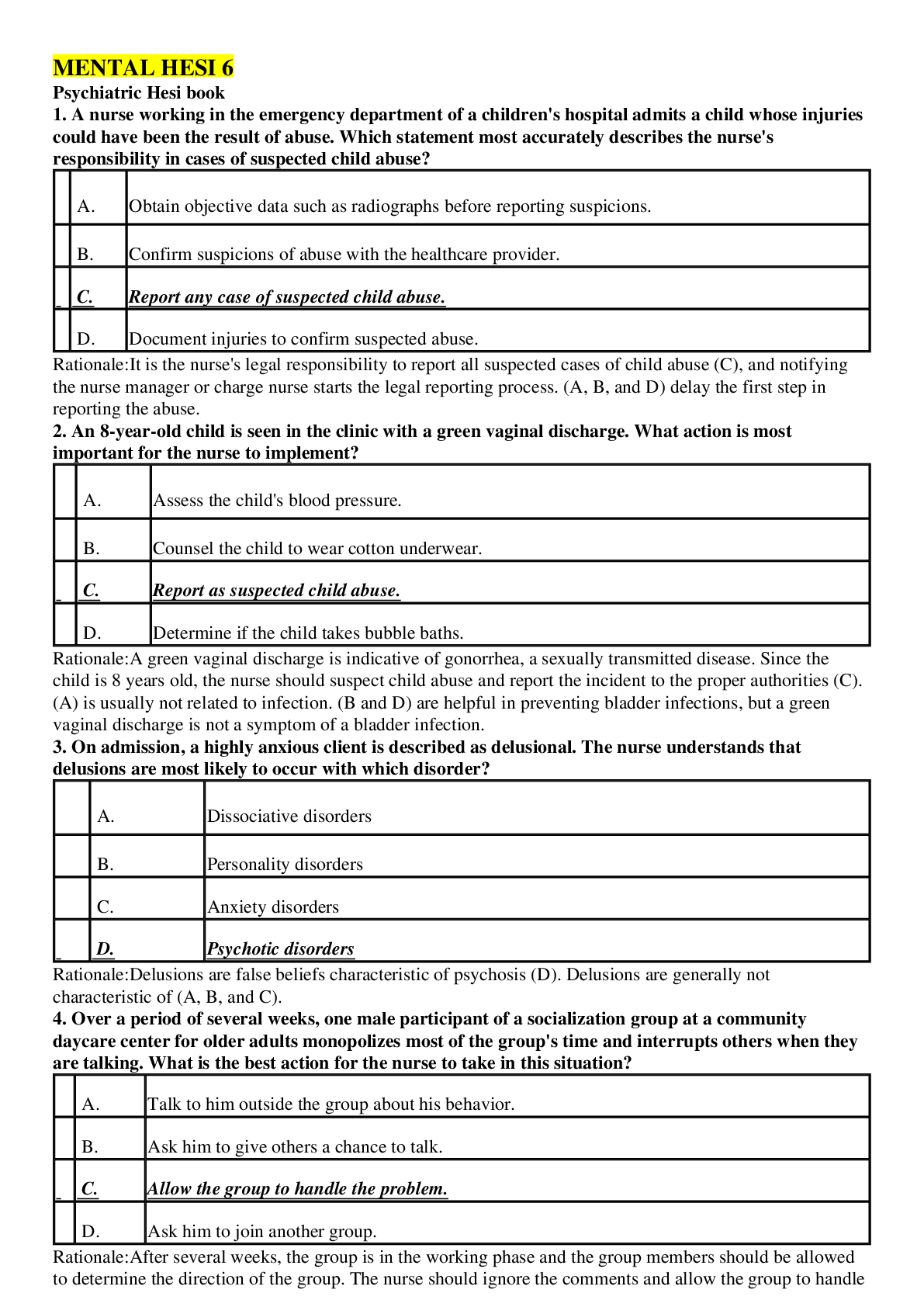
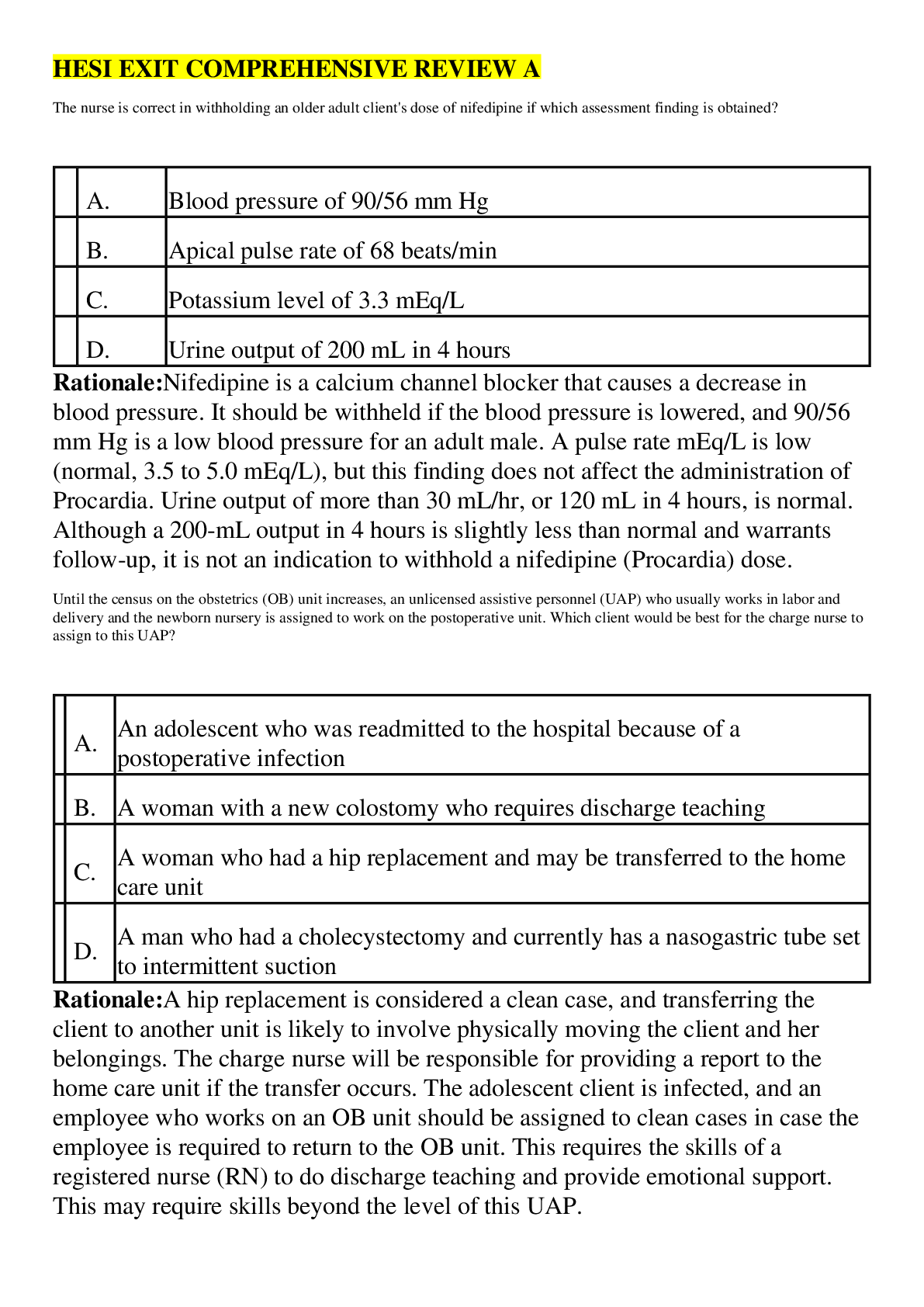
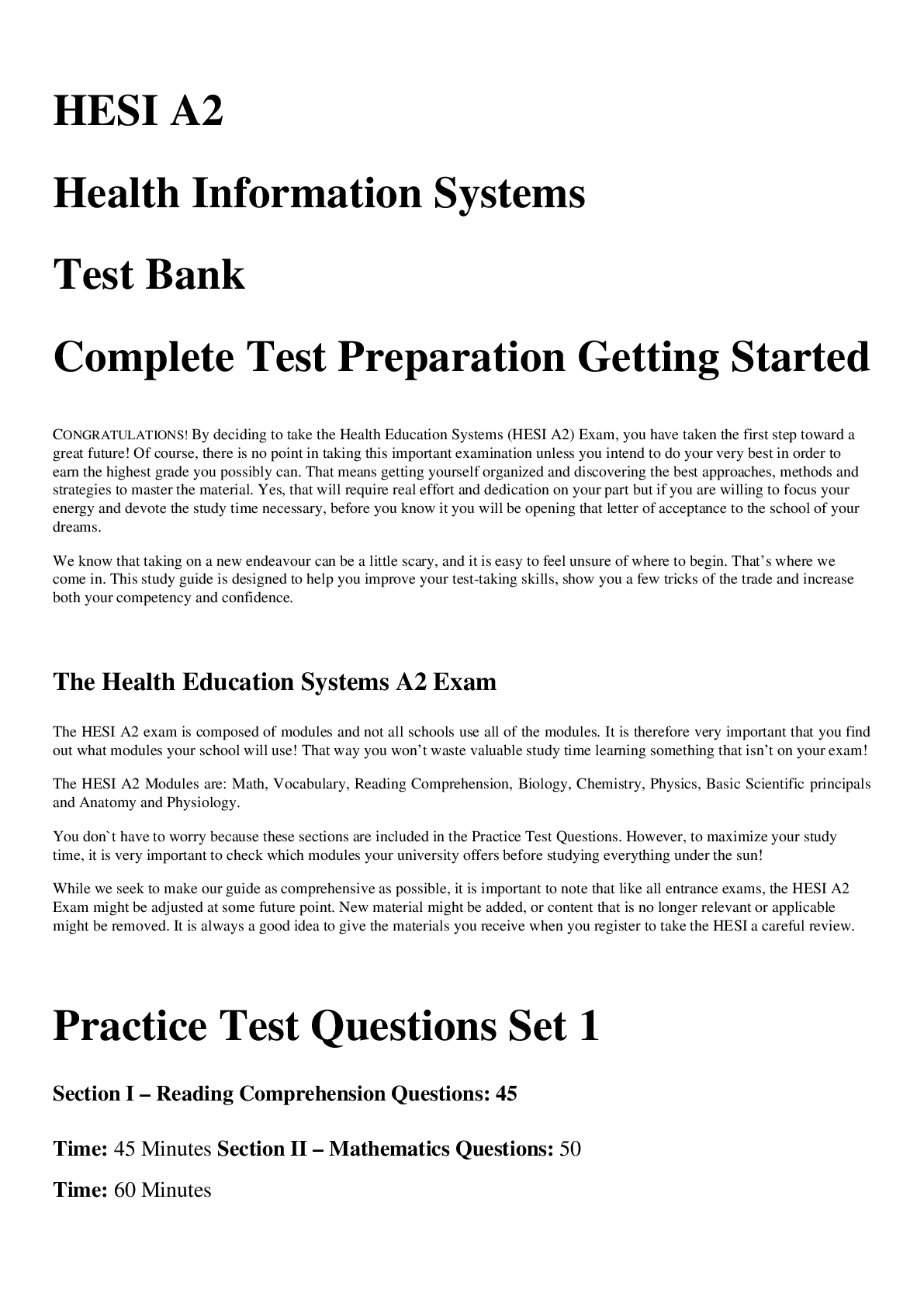
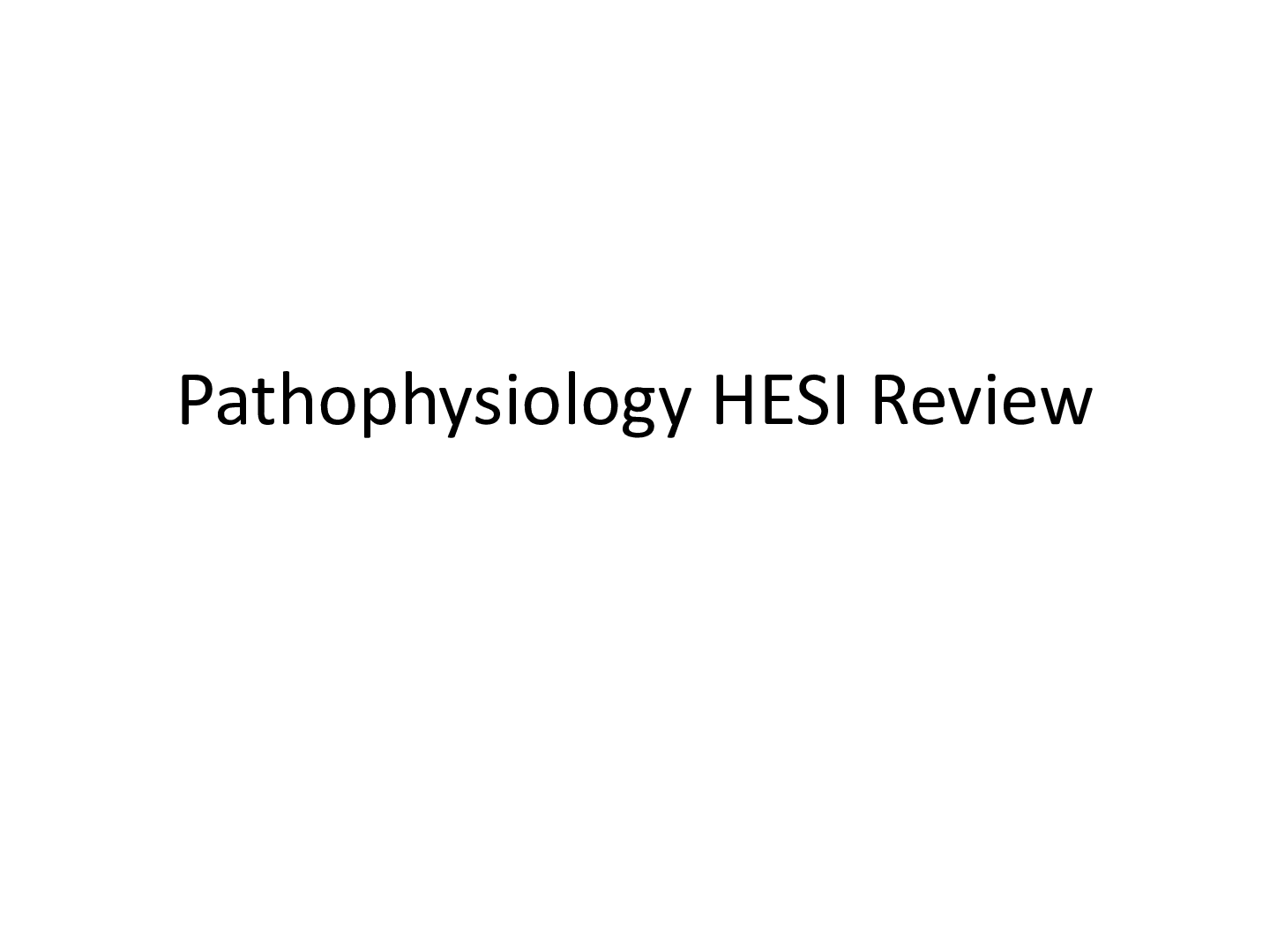
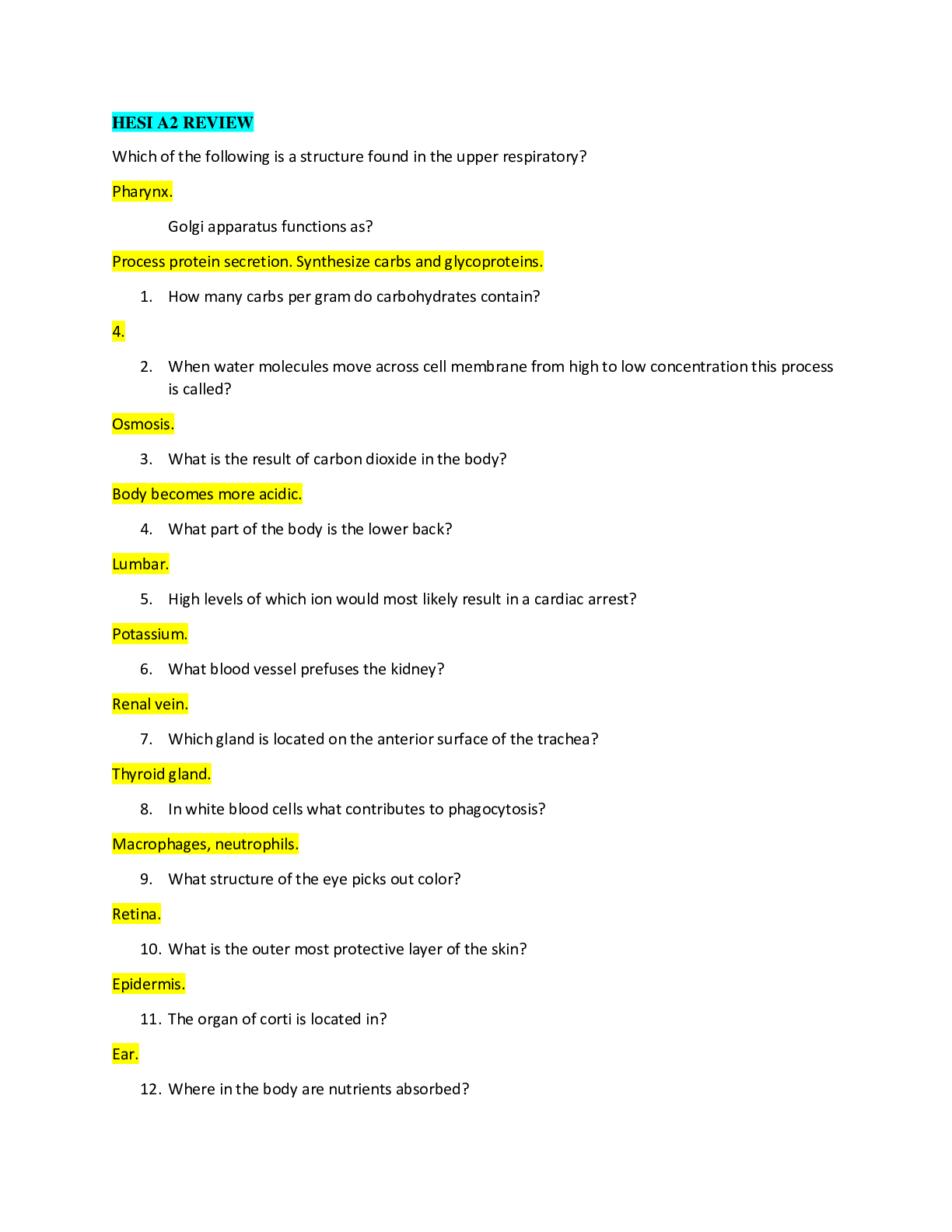
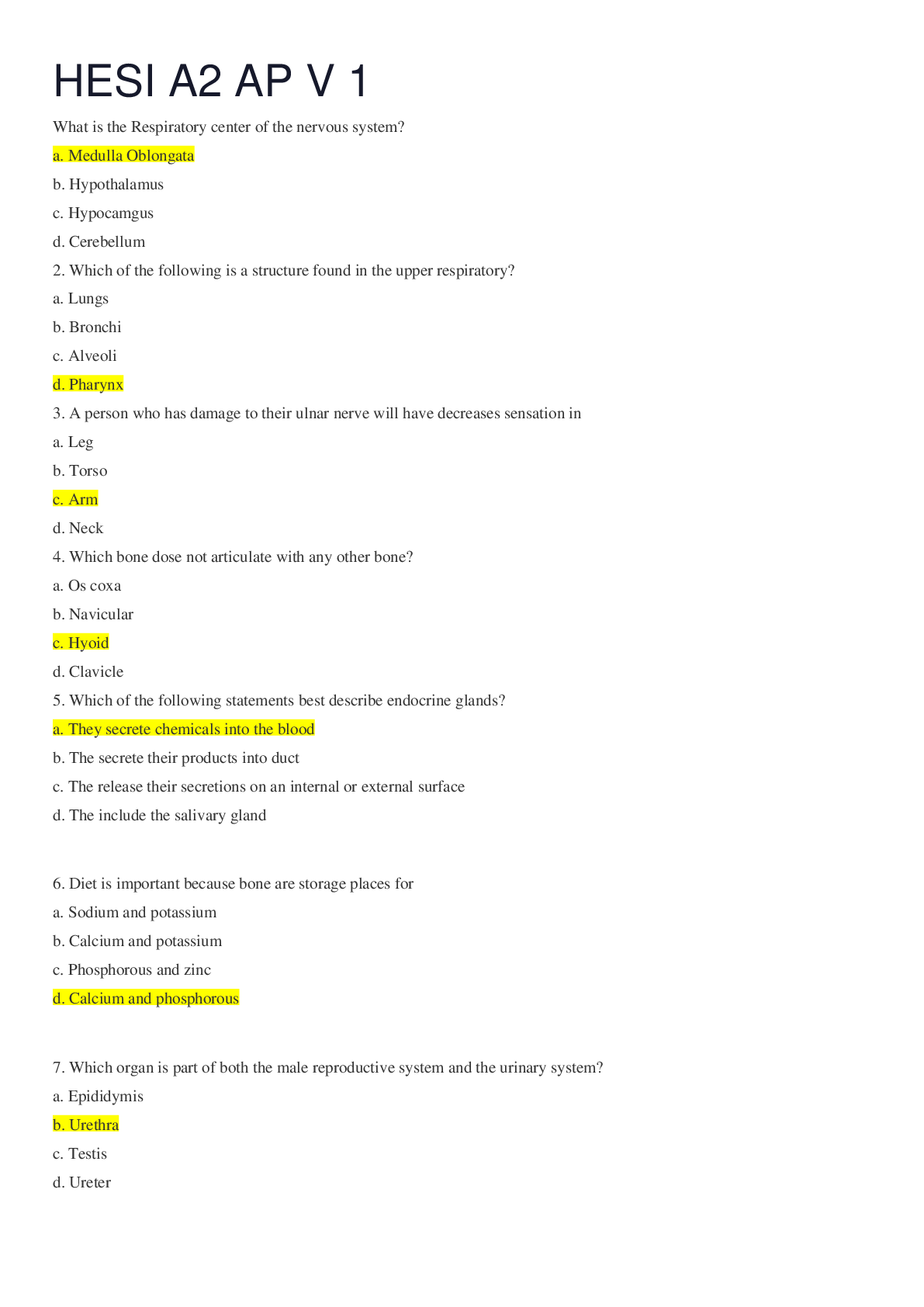
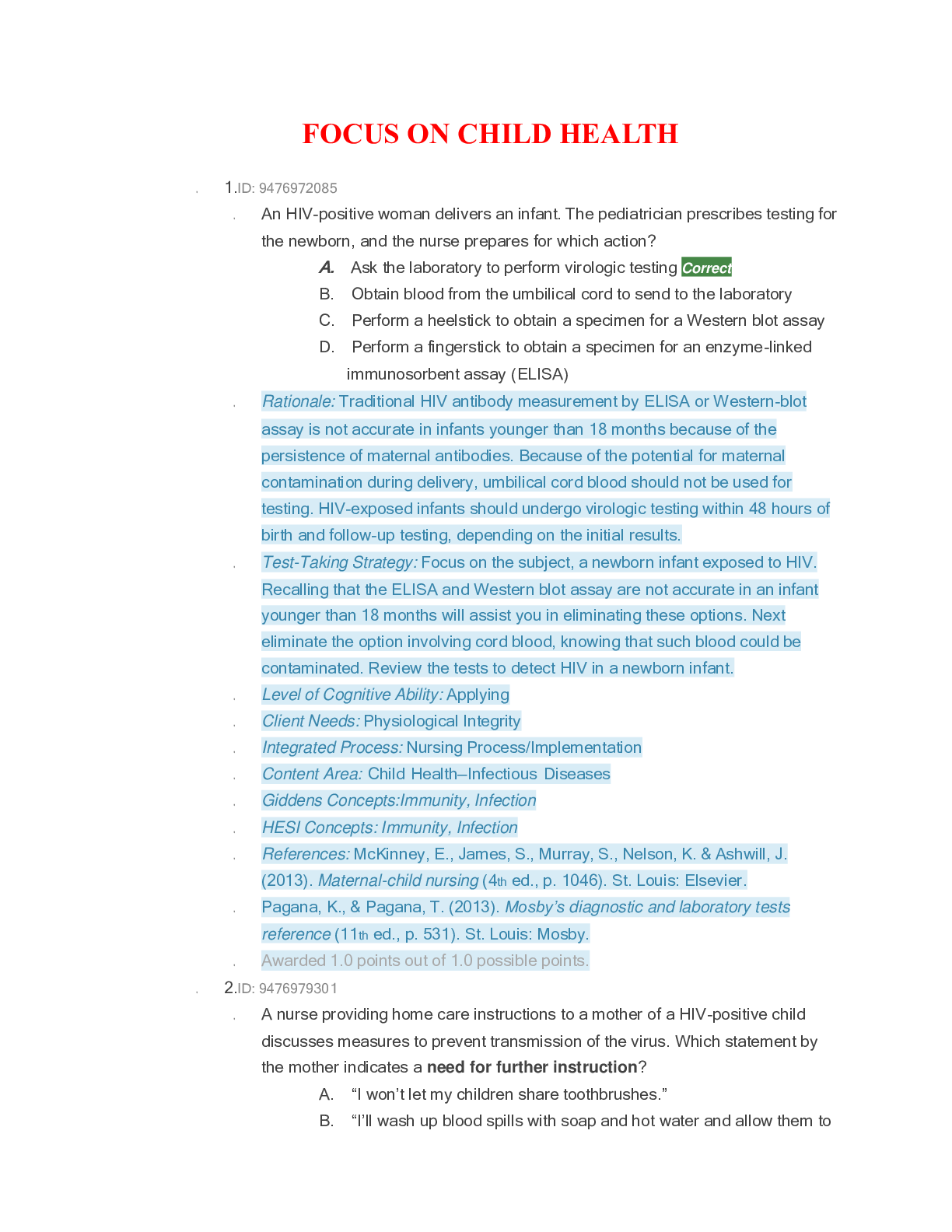
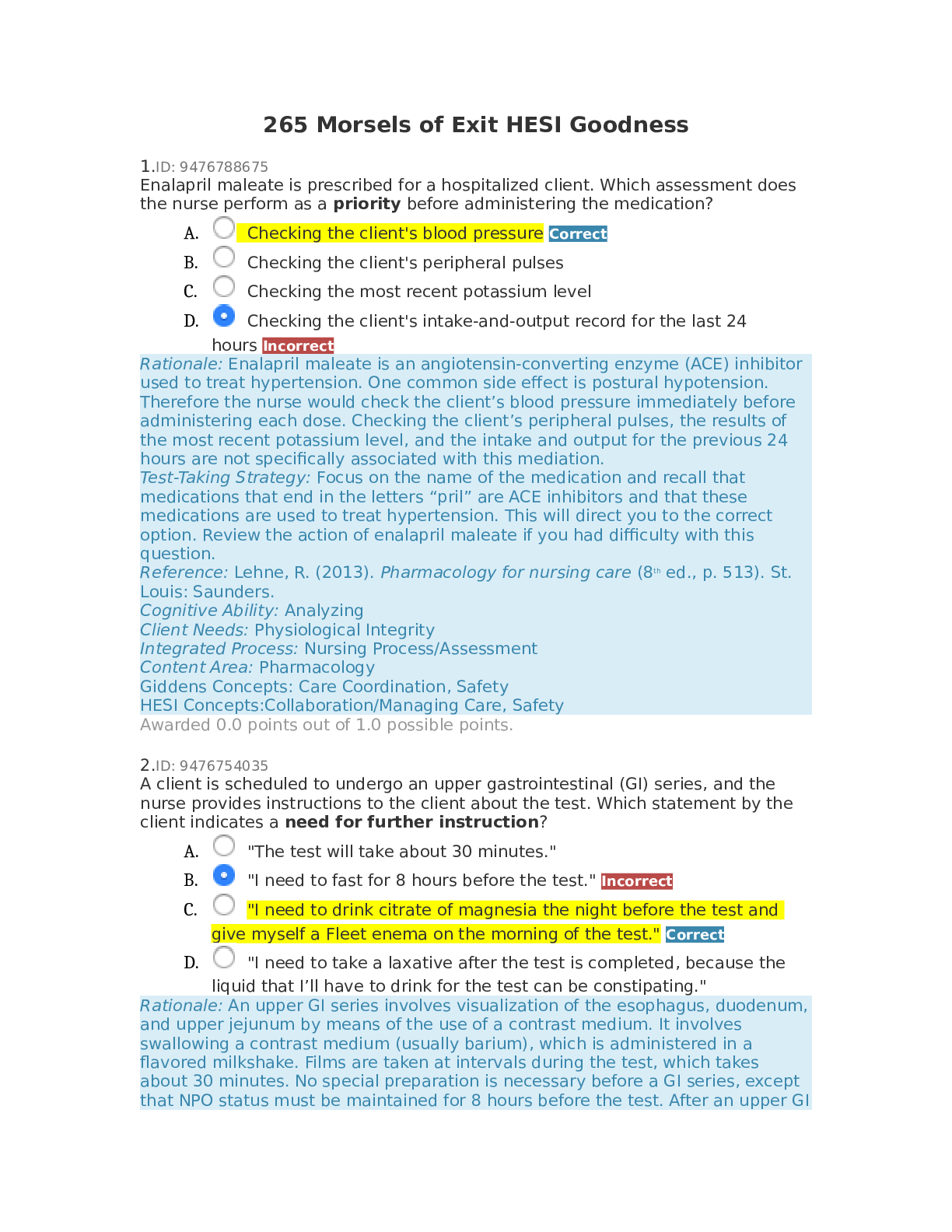
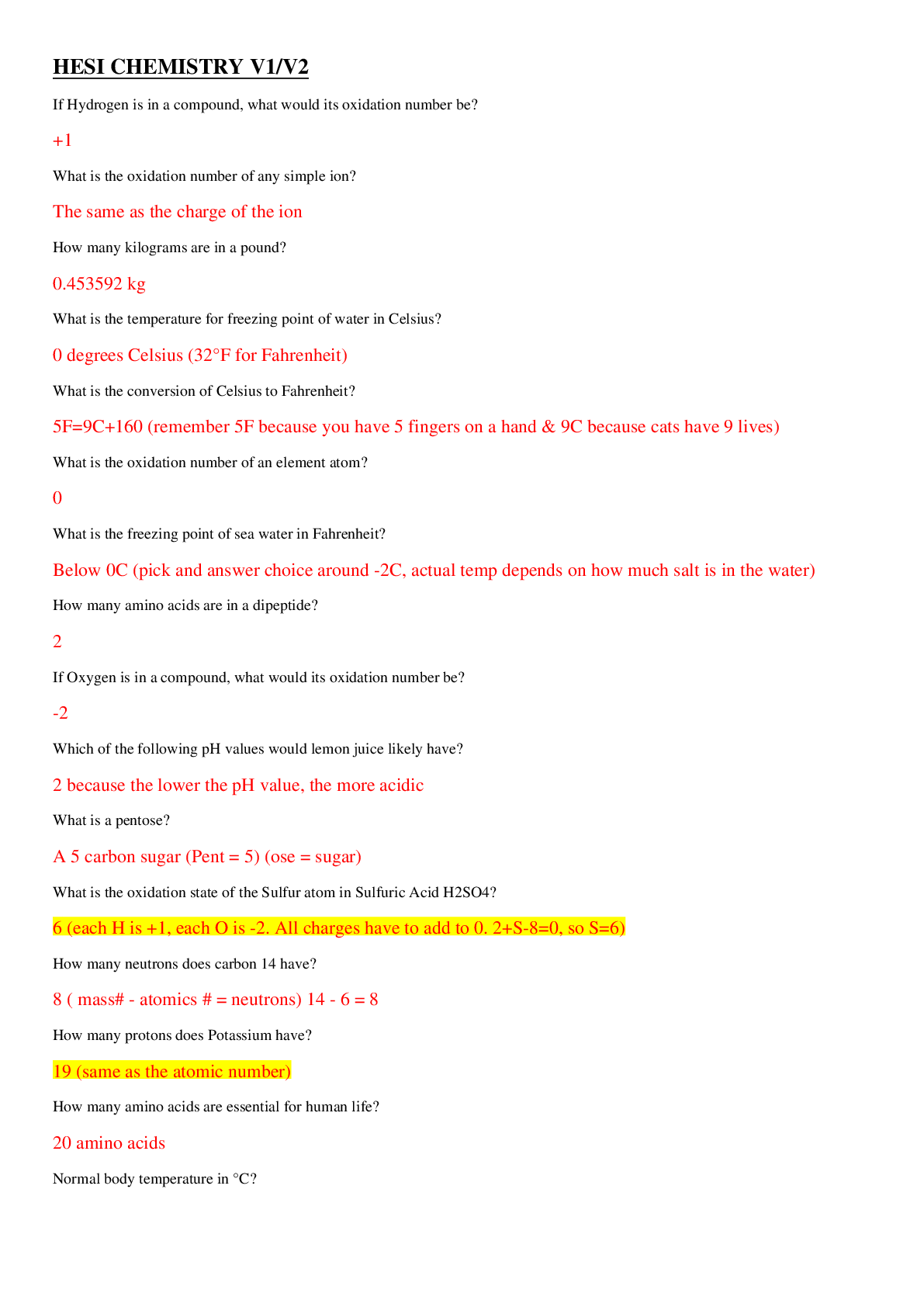

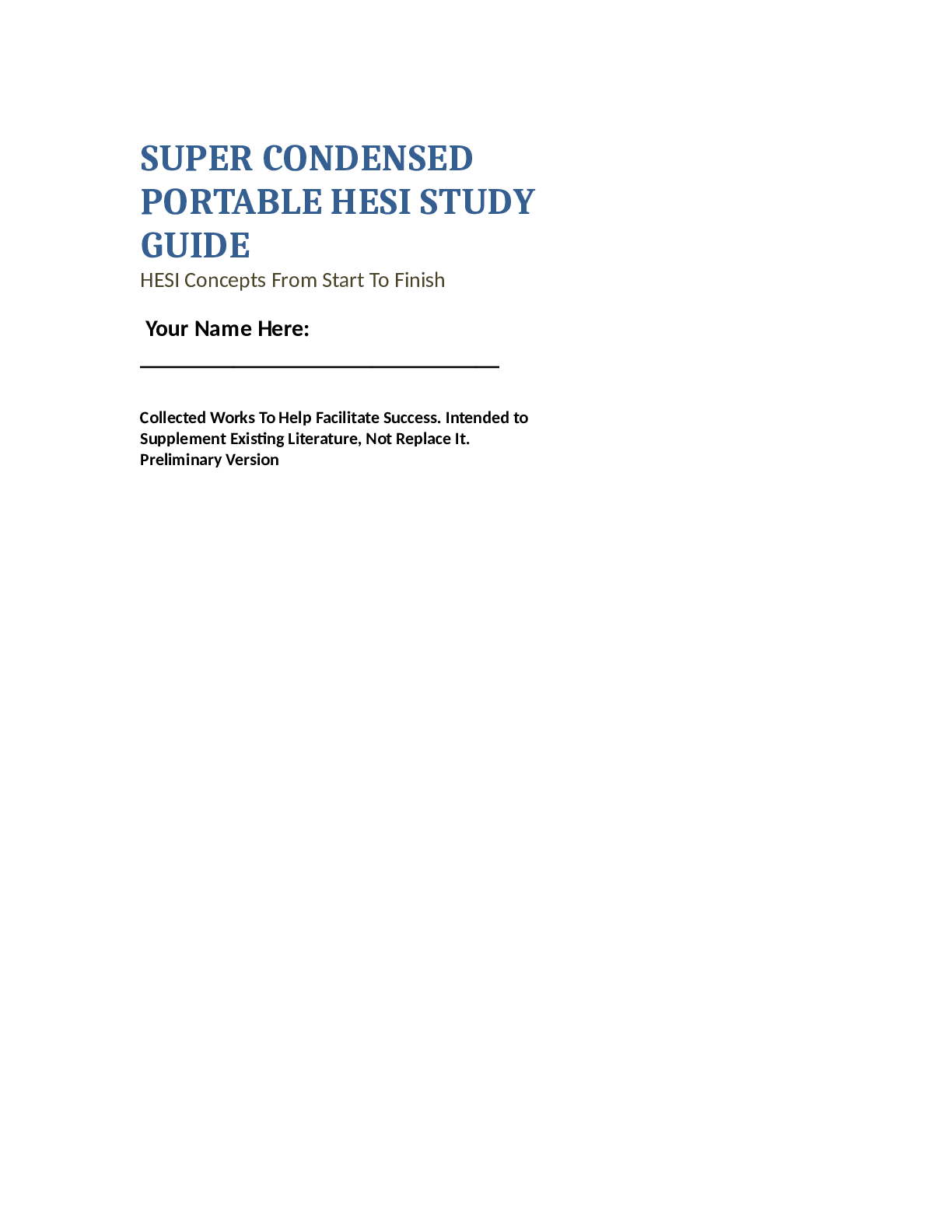
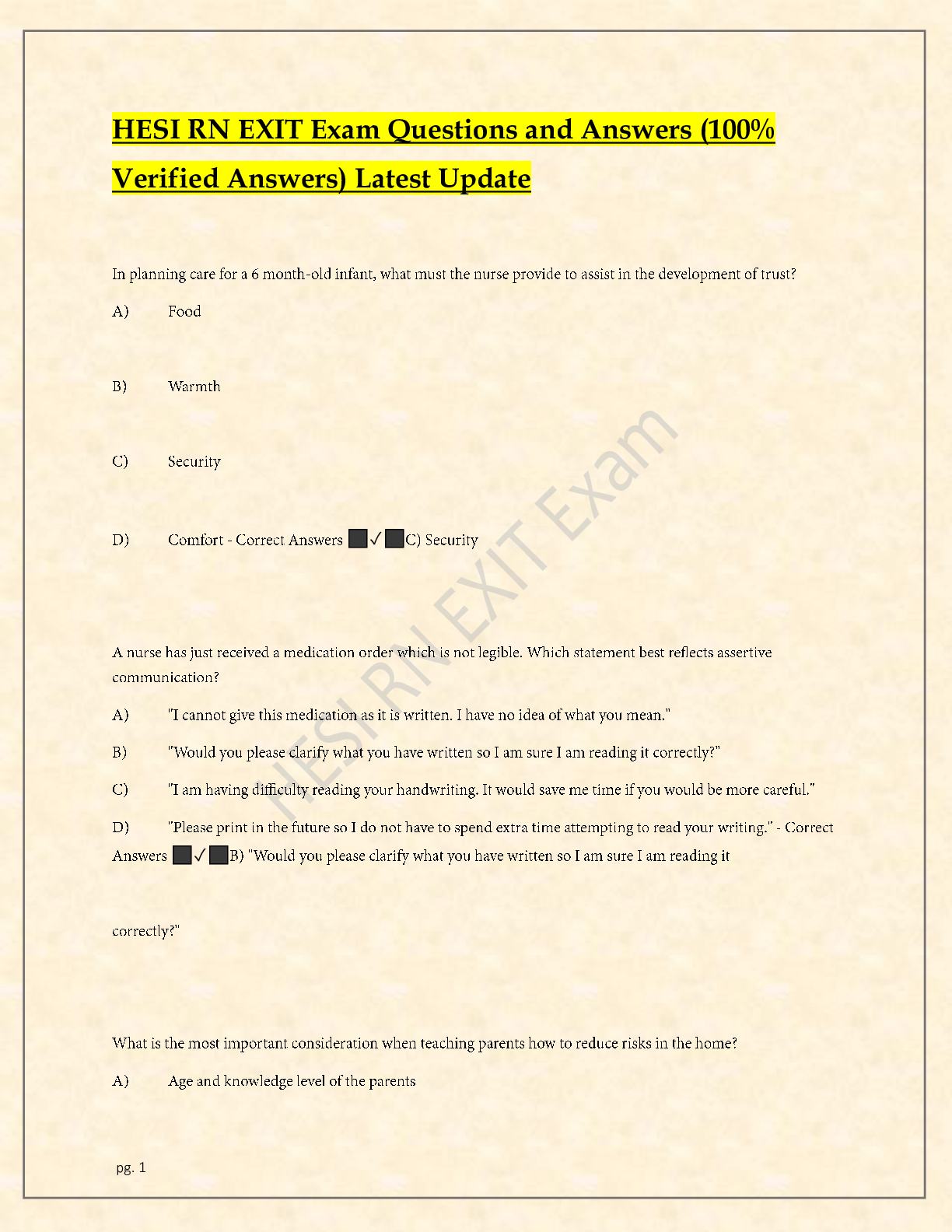
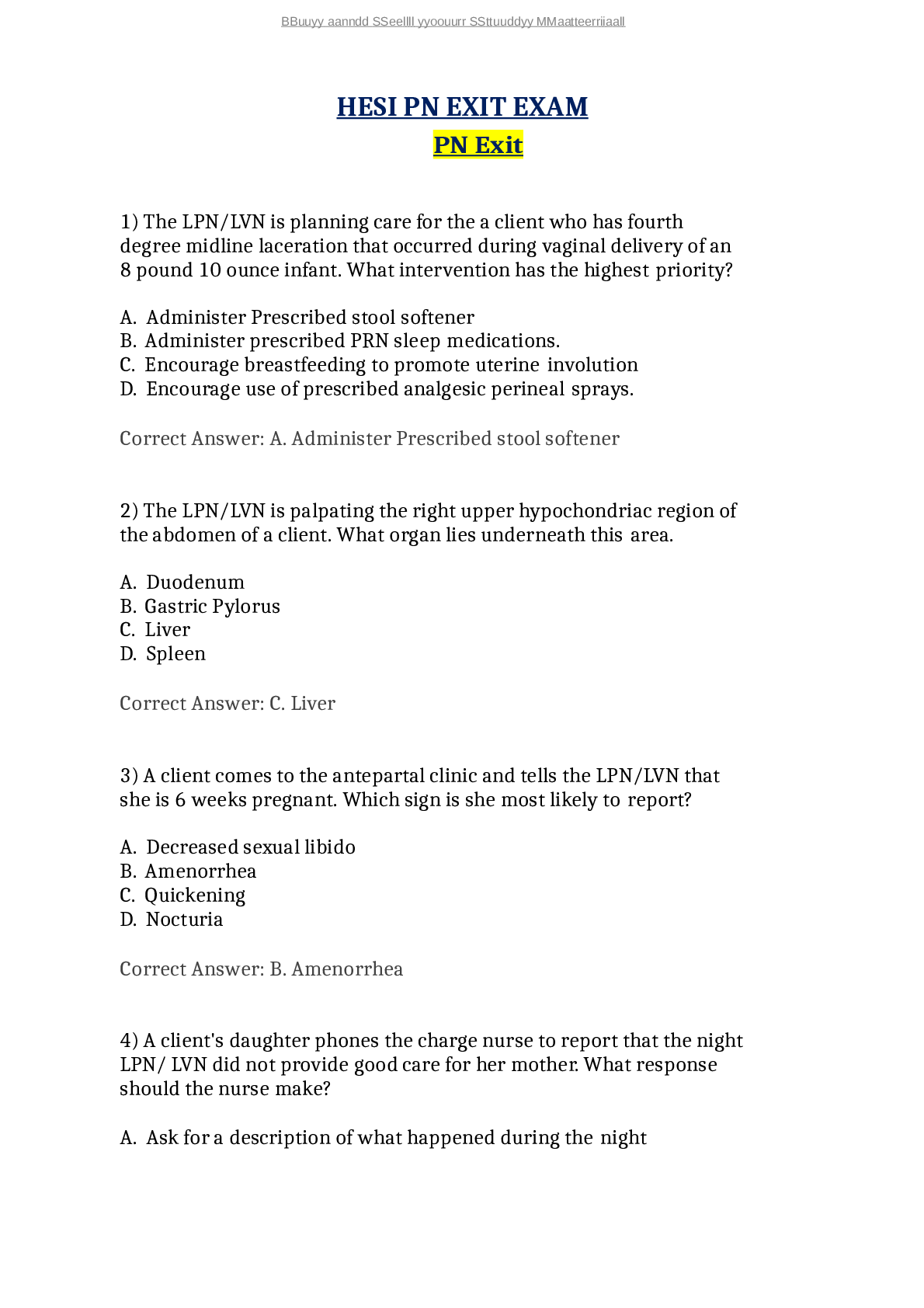
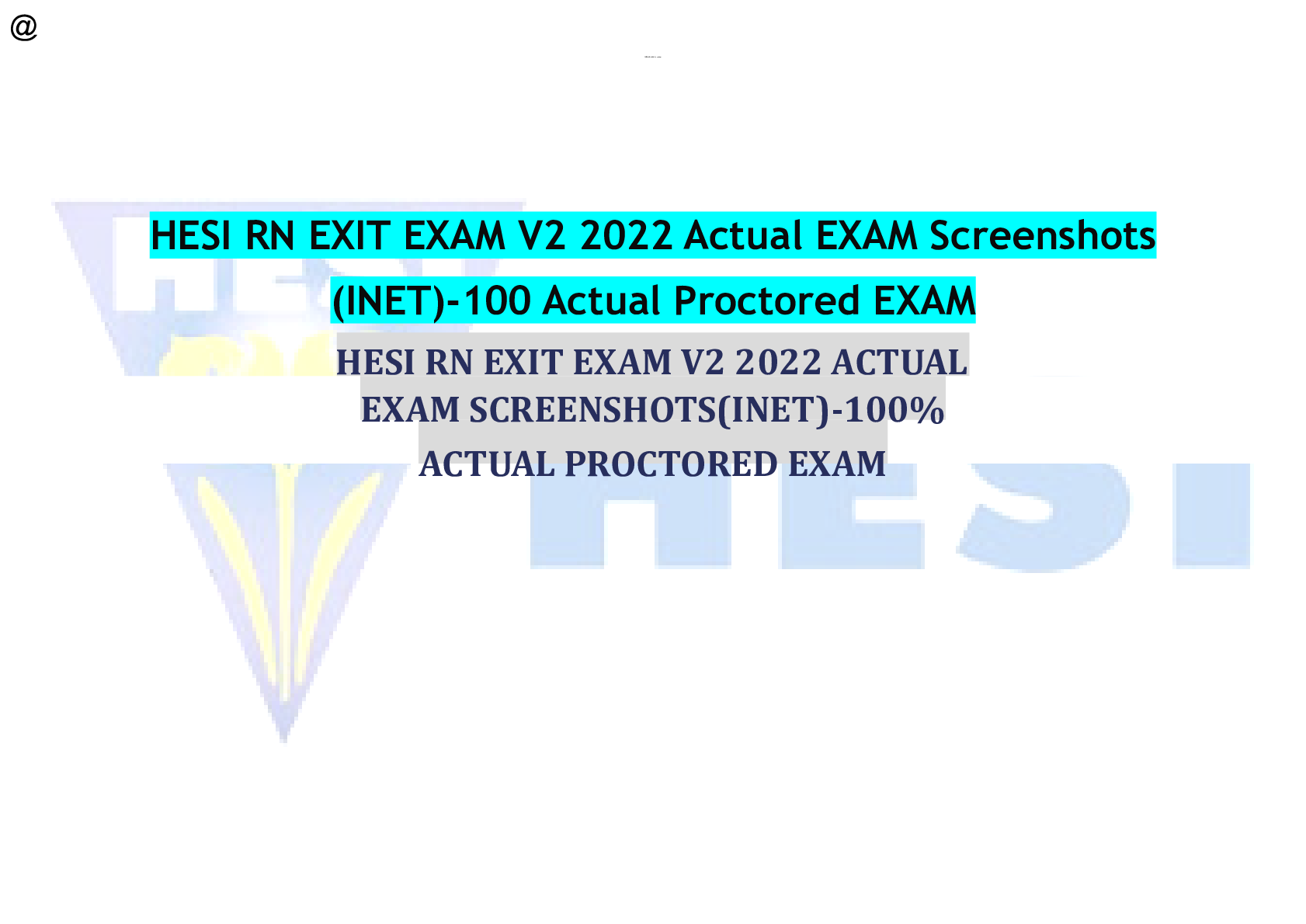
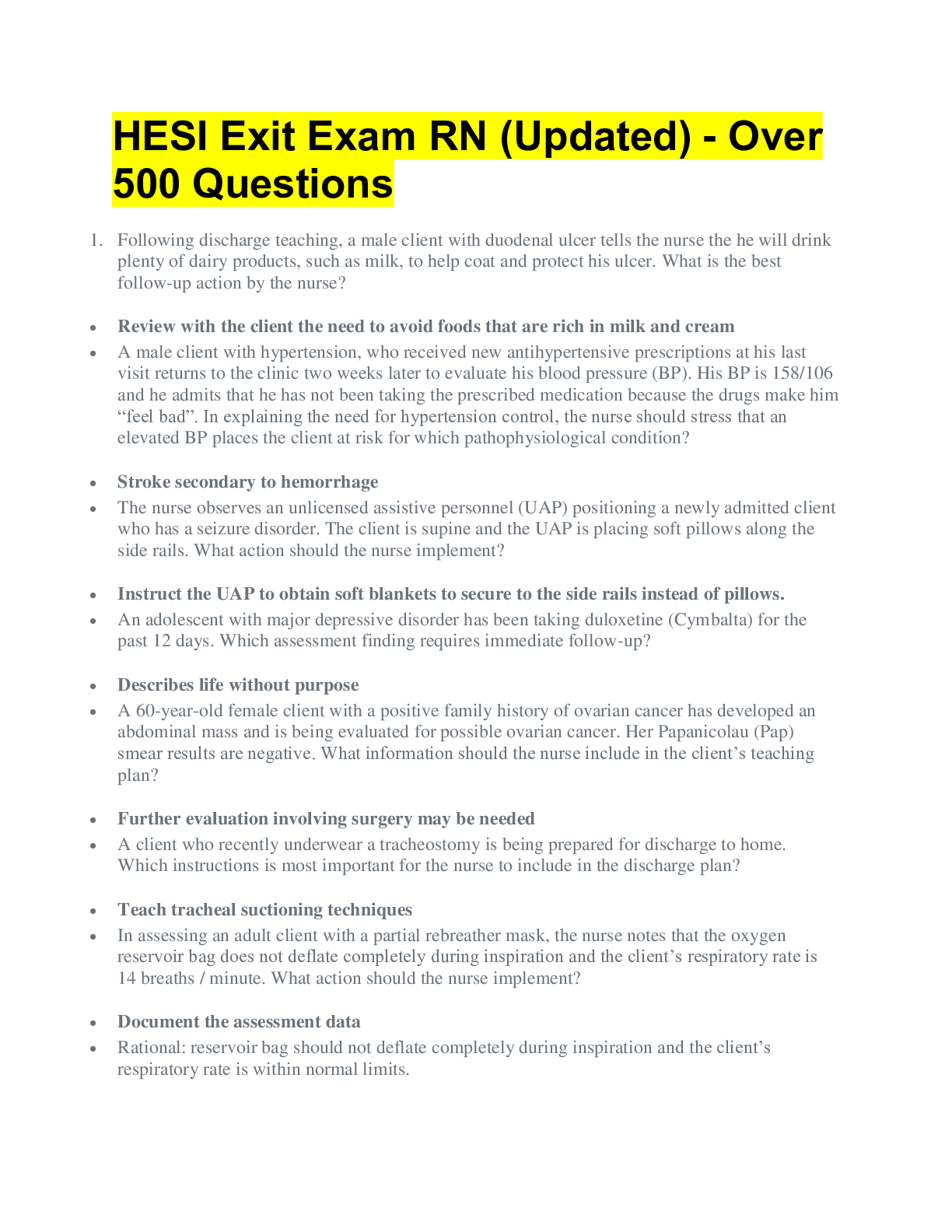
 (1).png)
